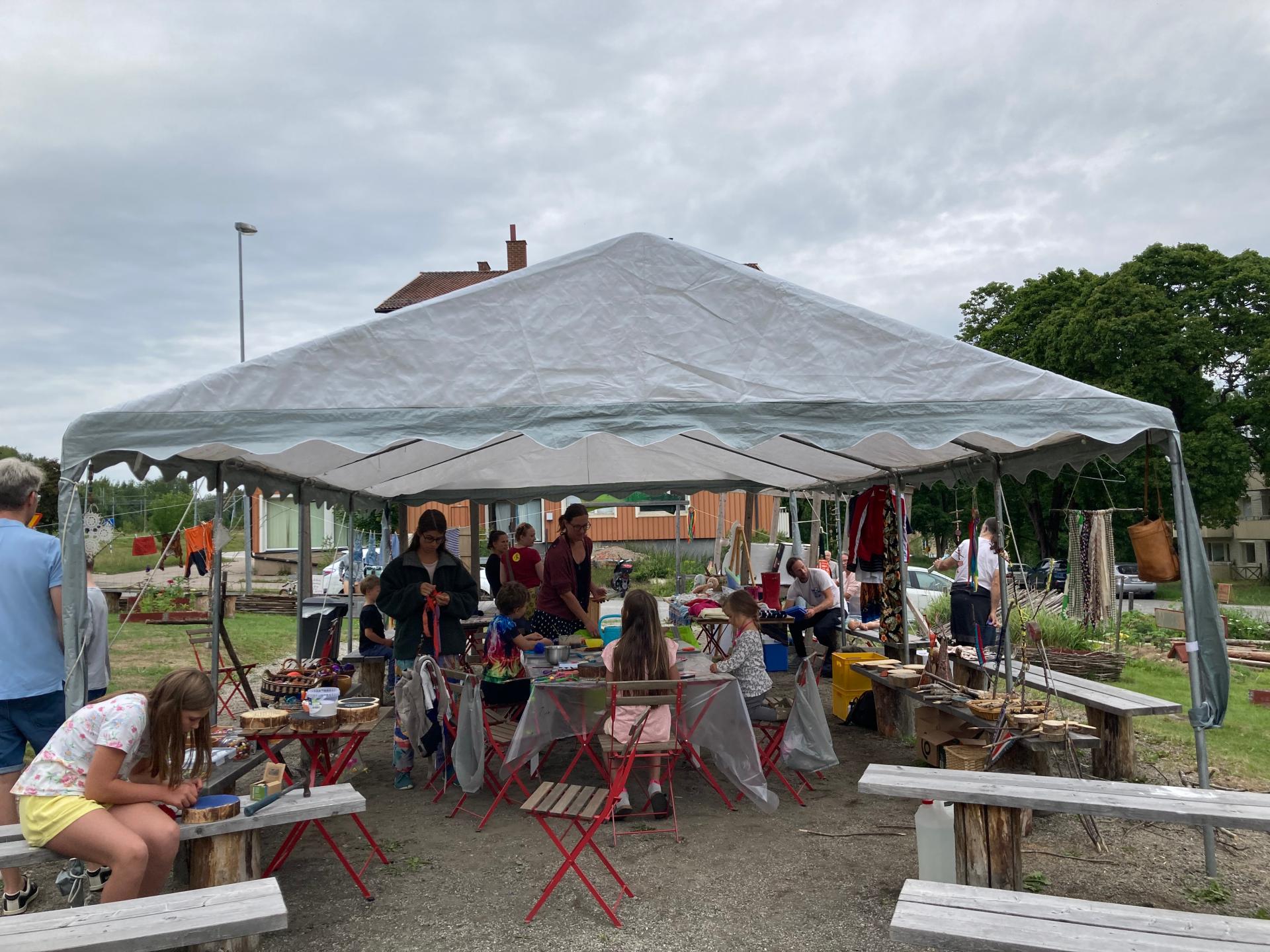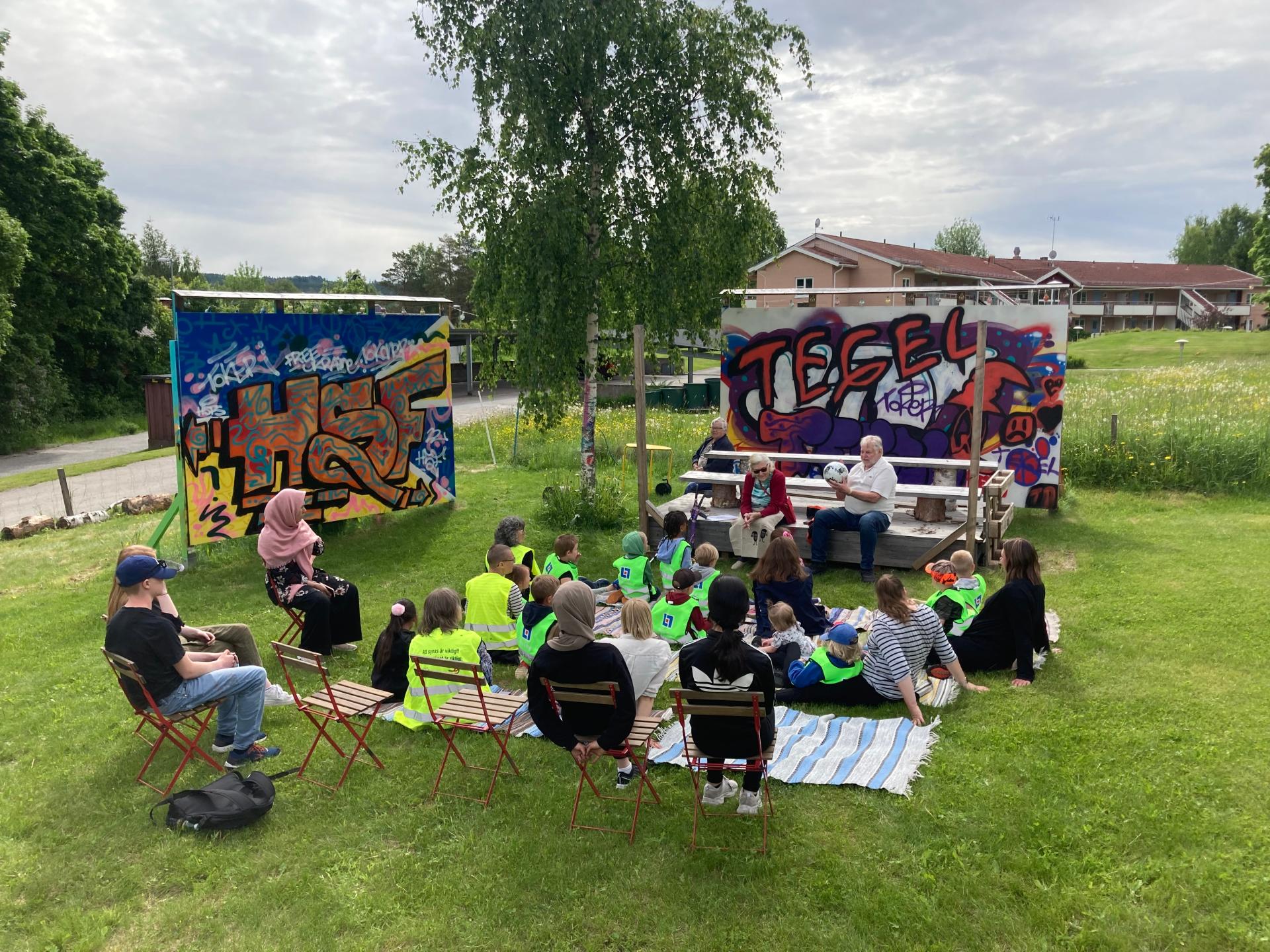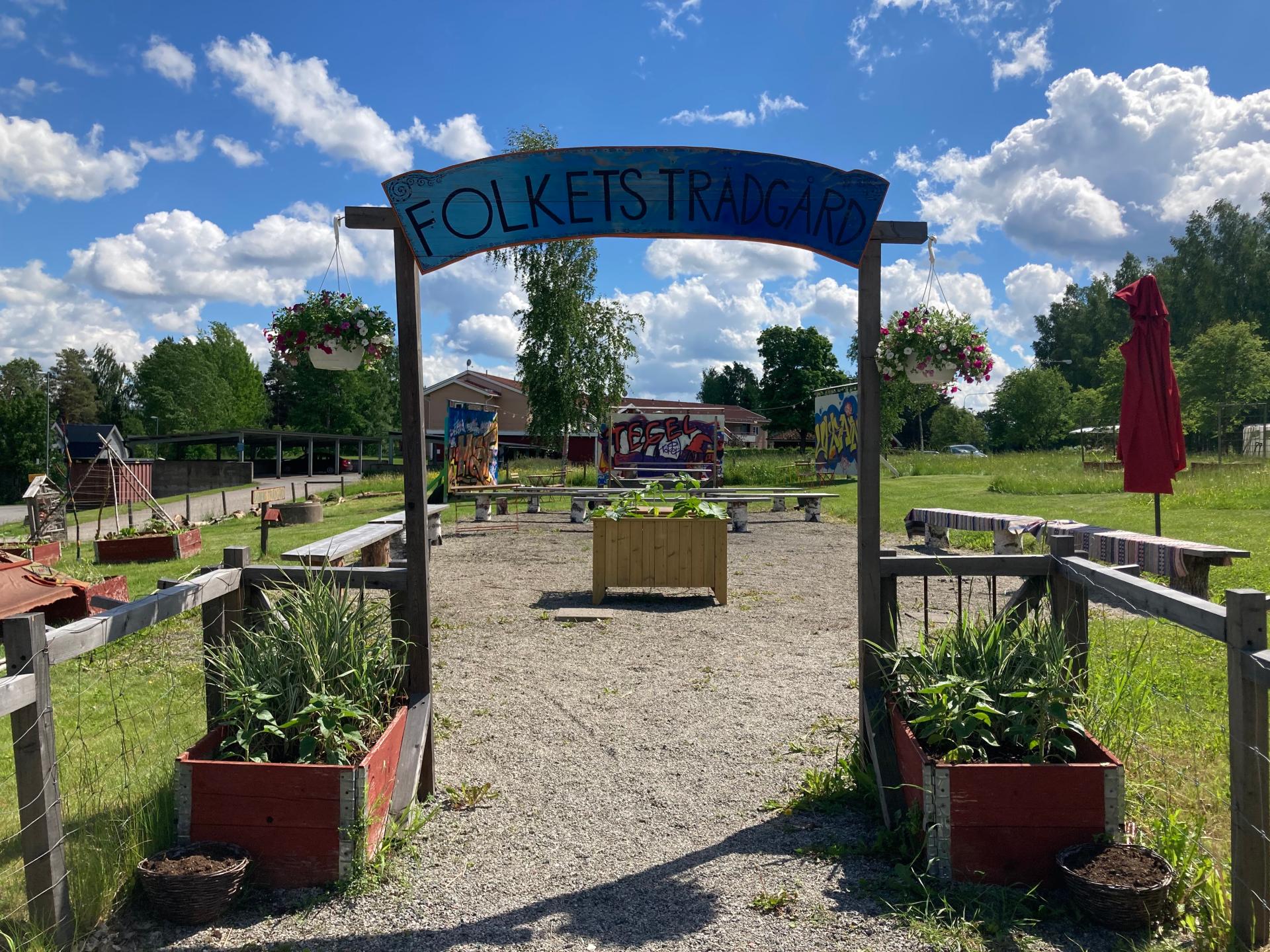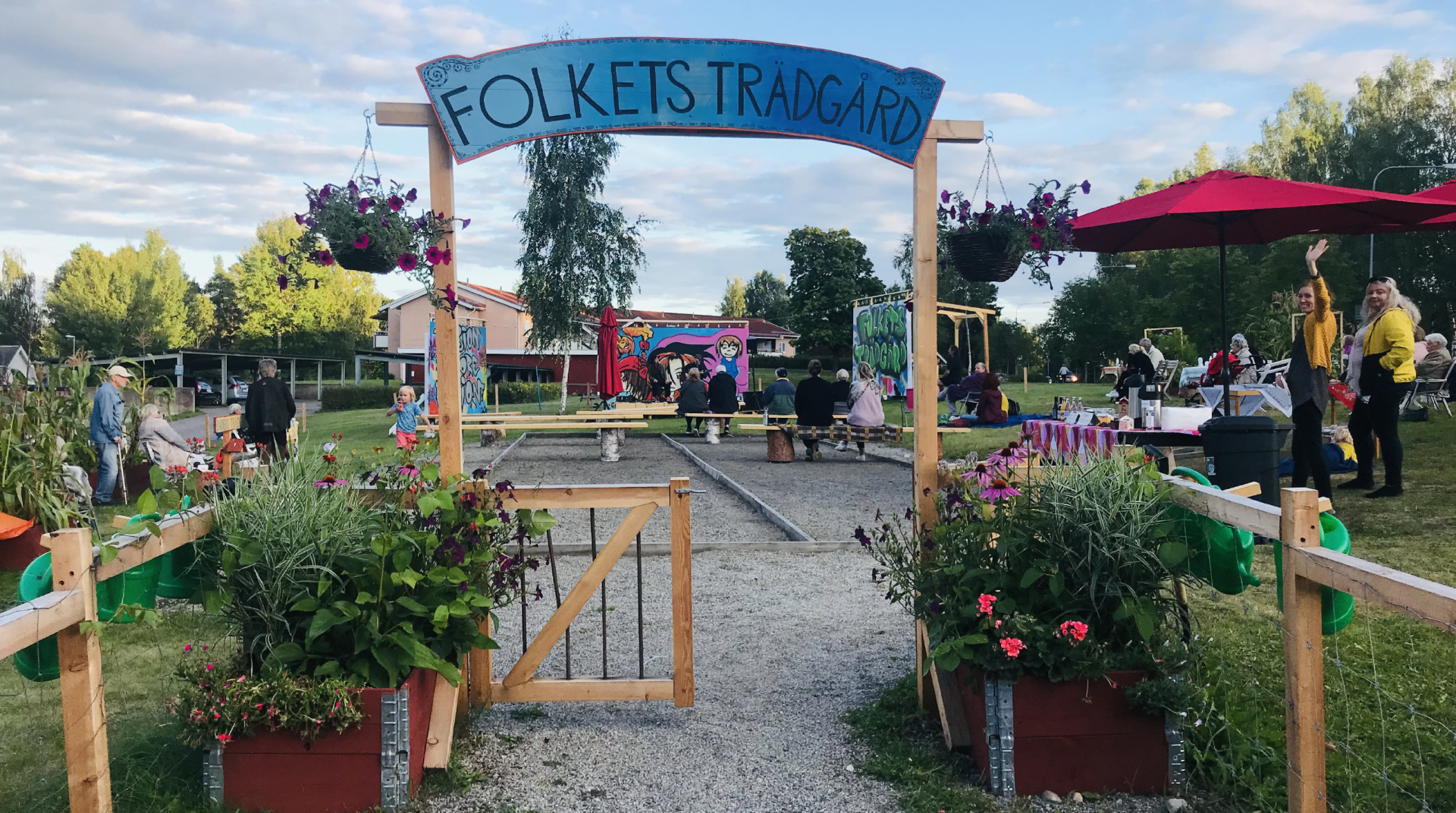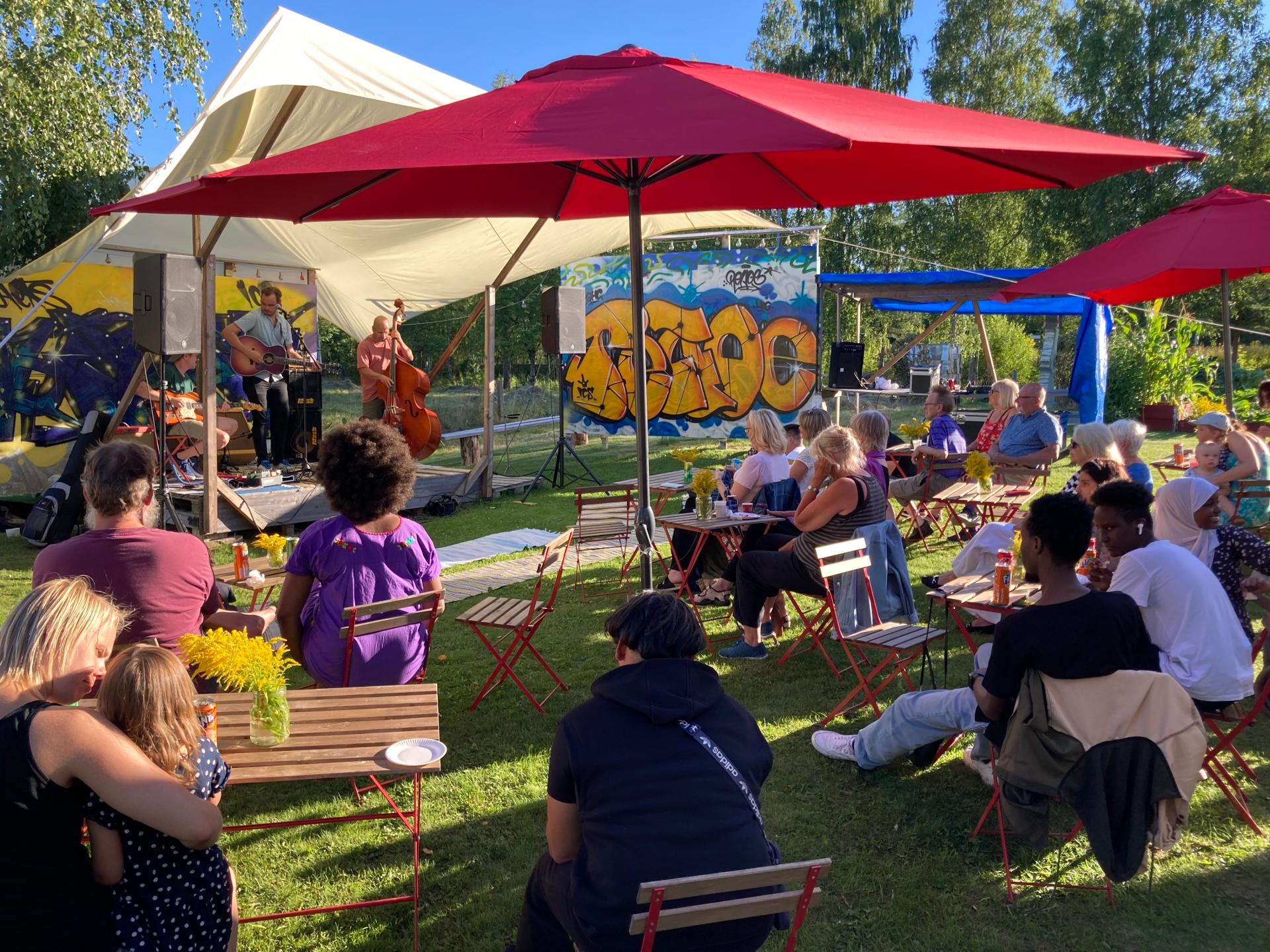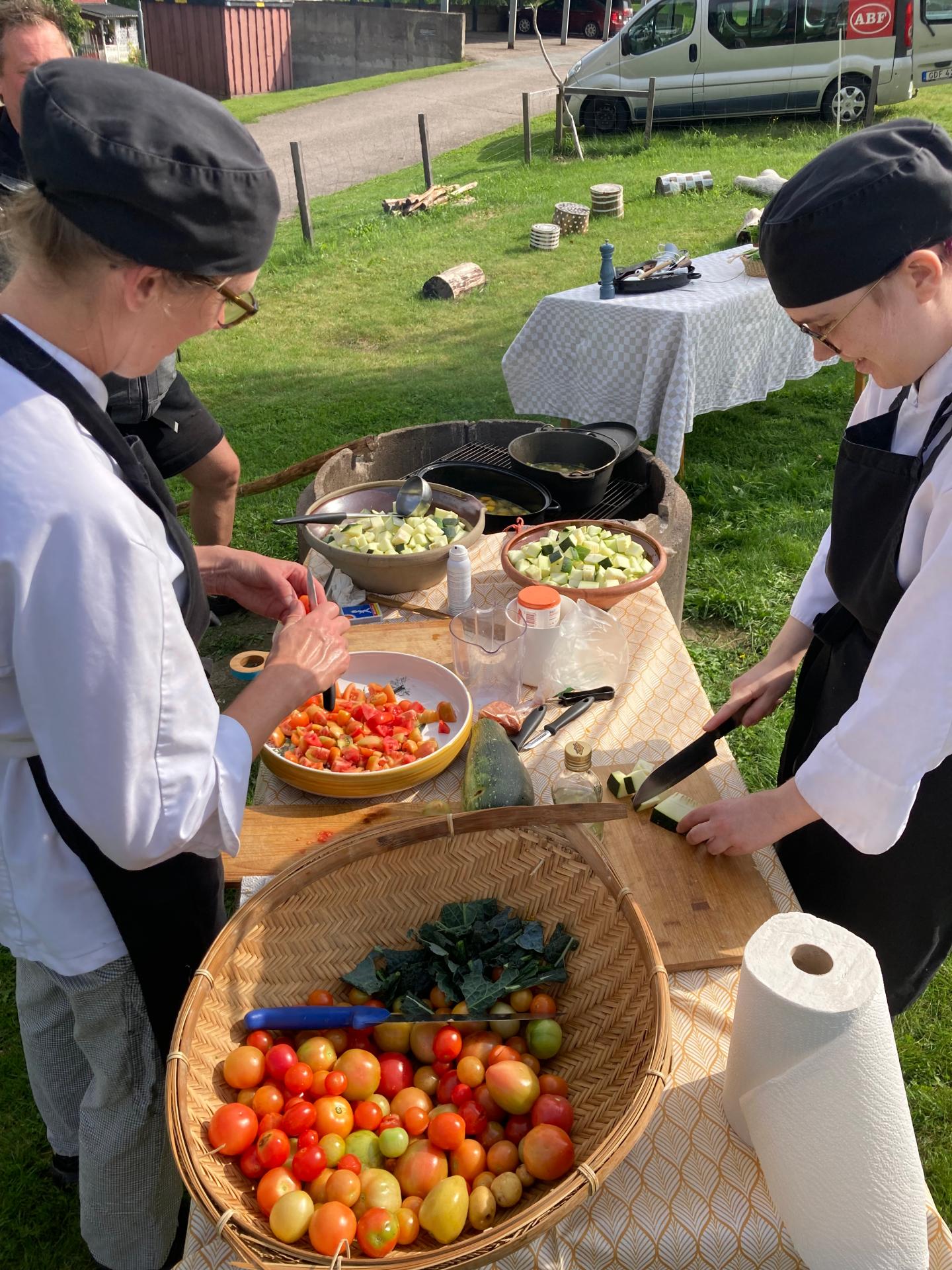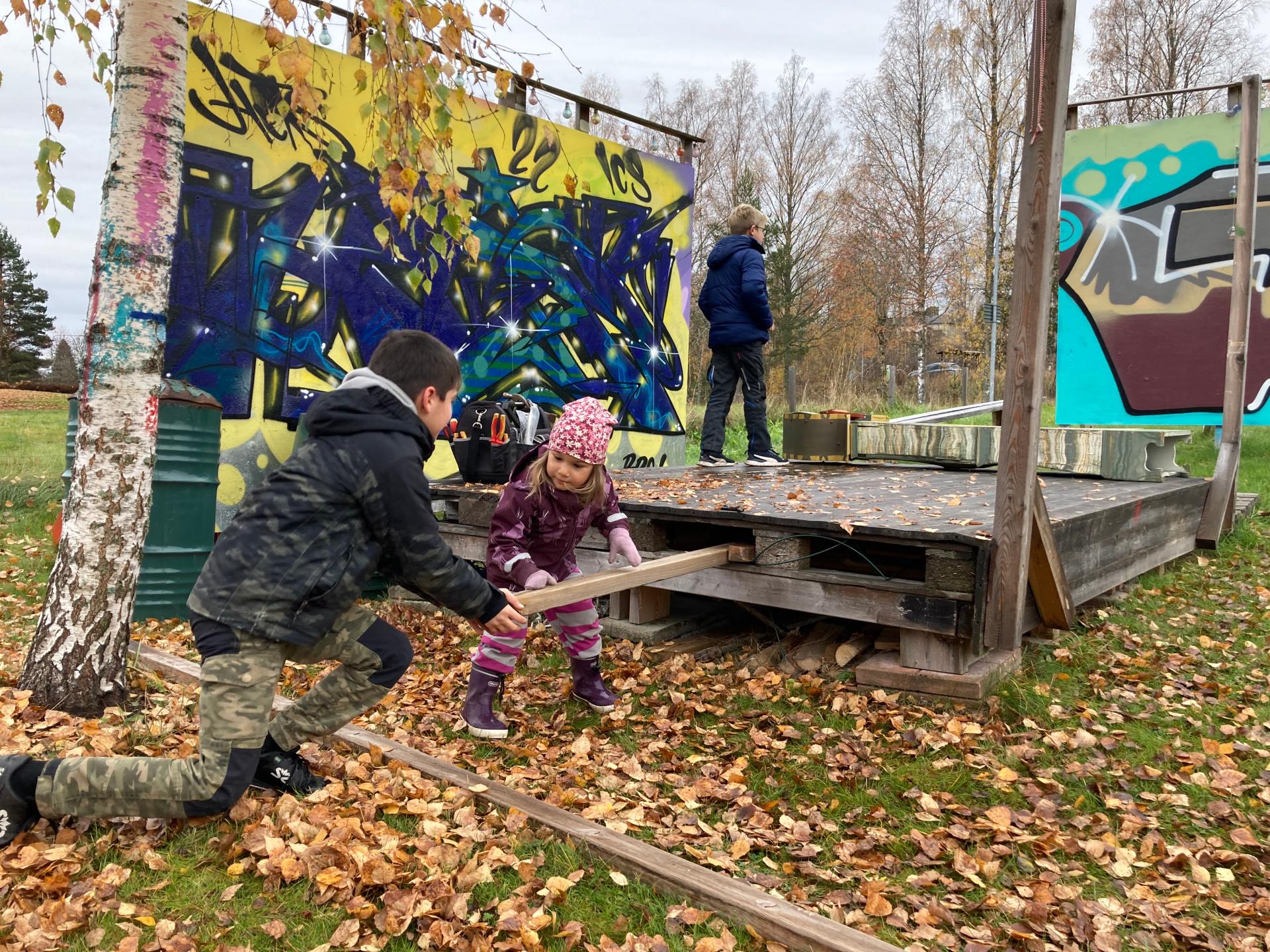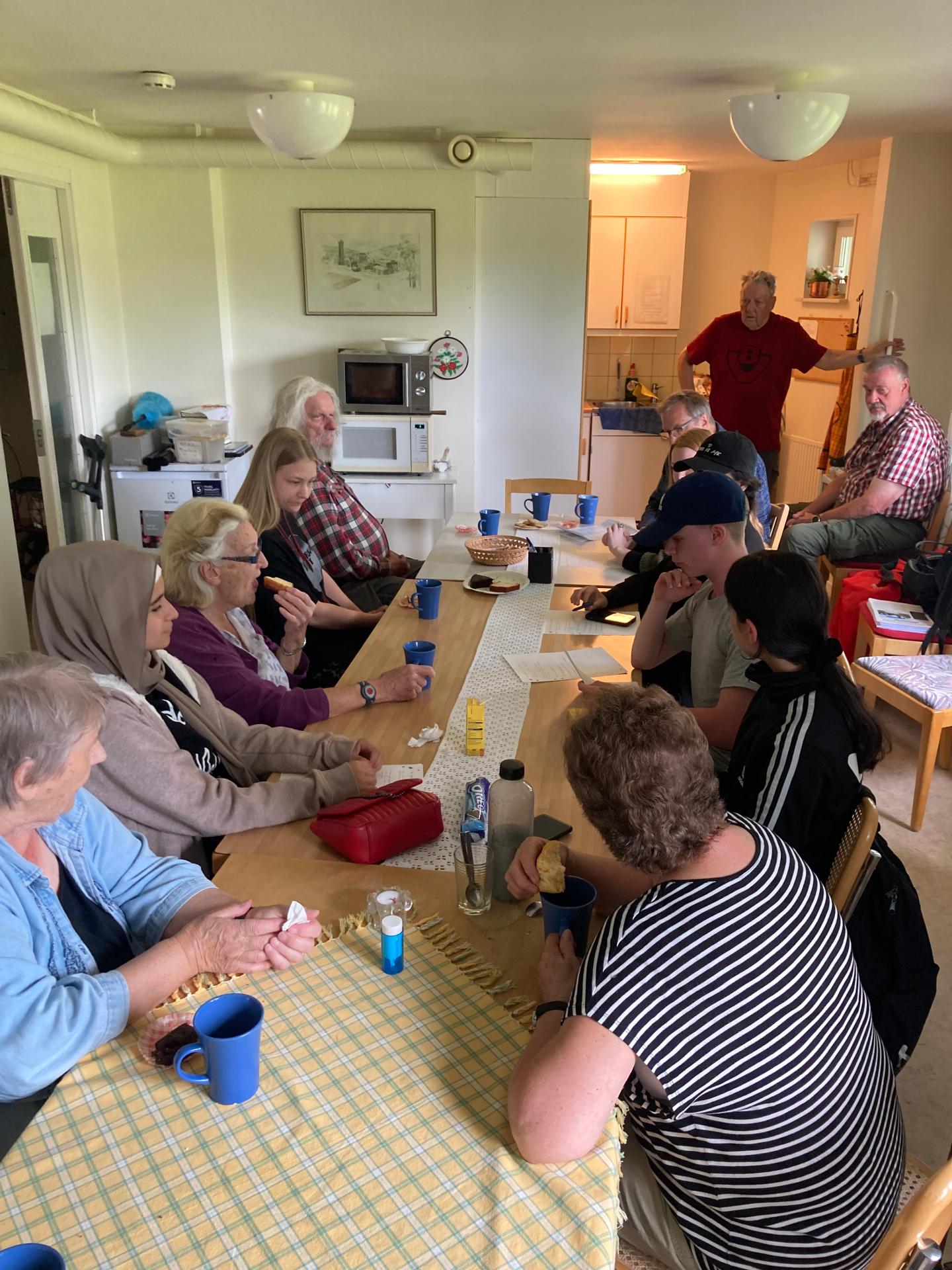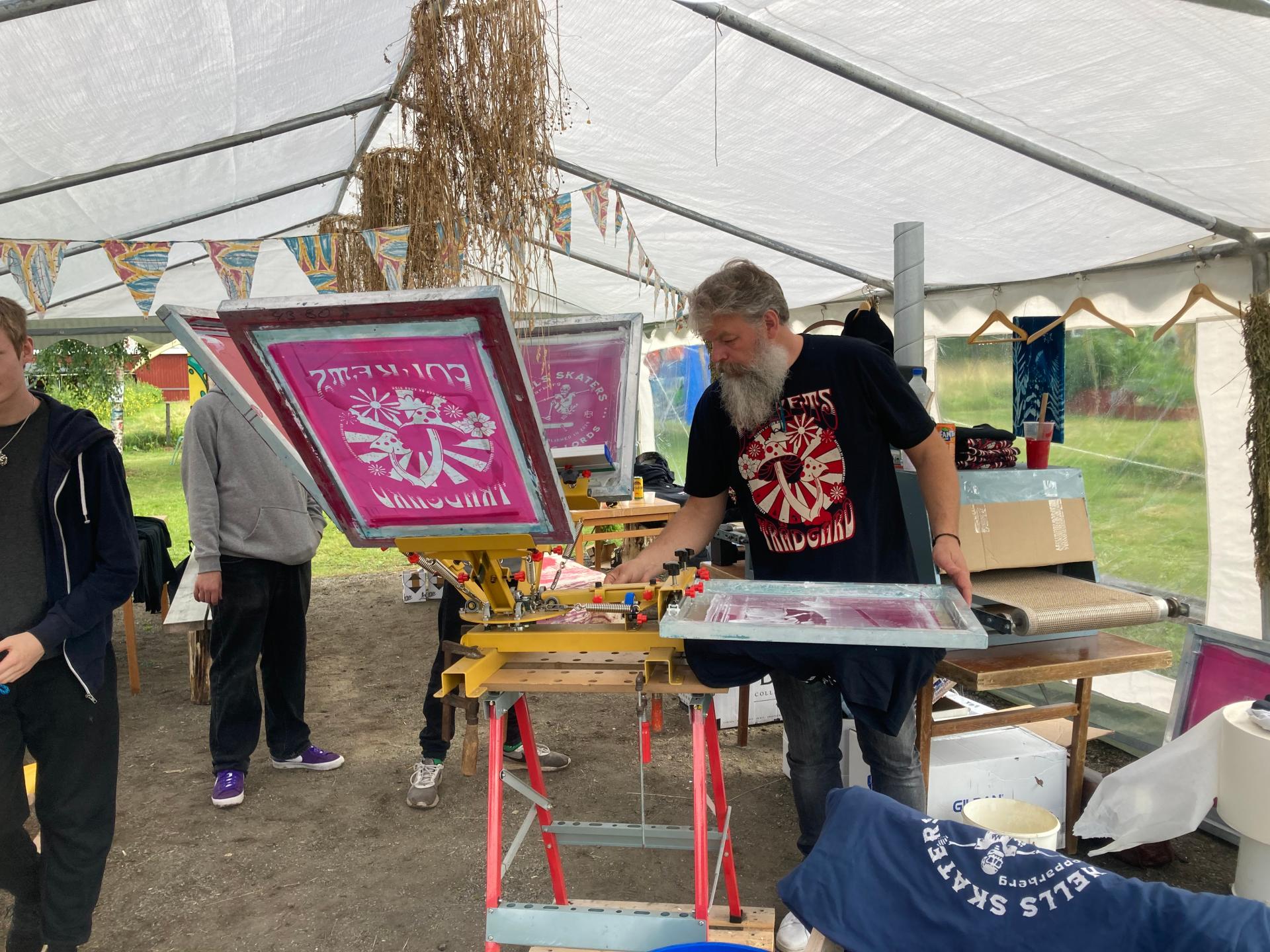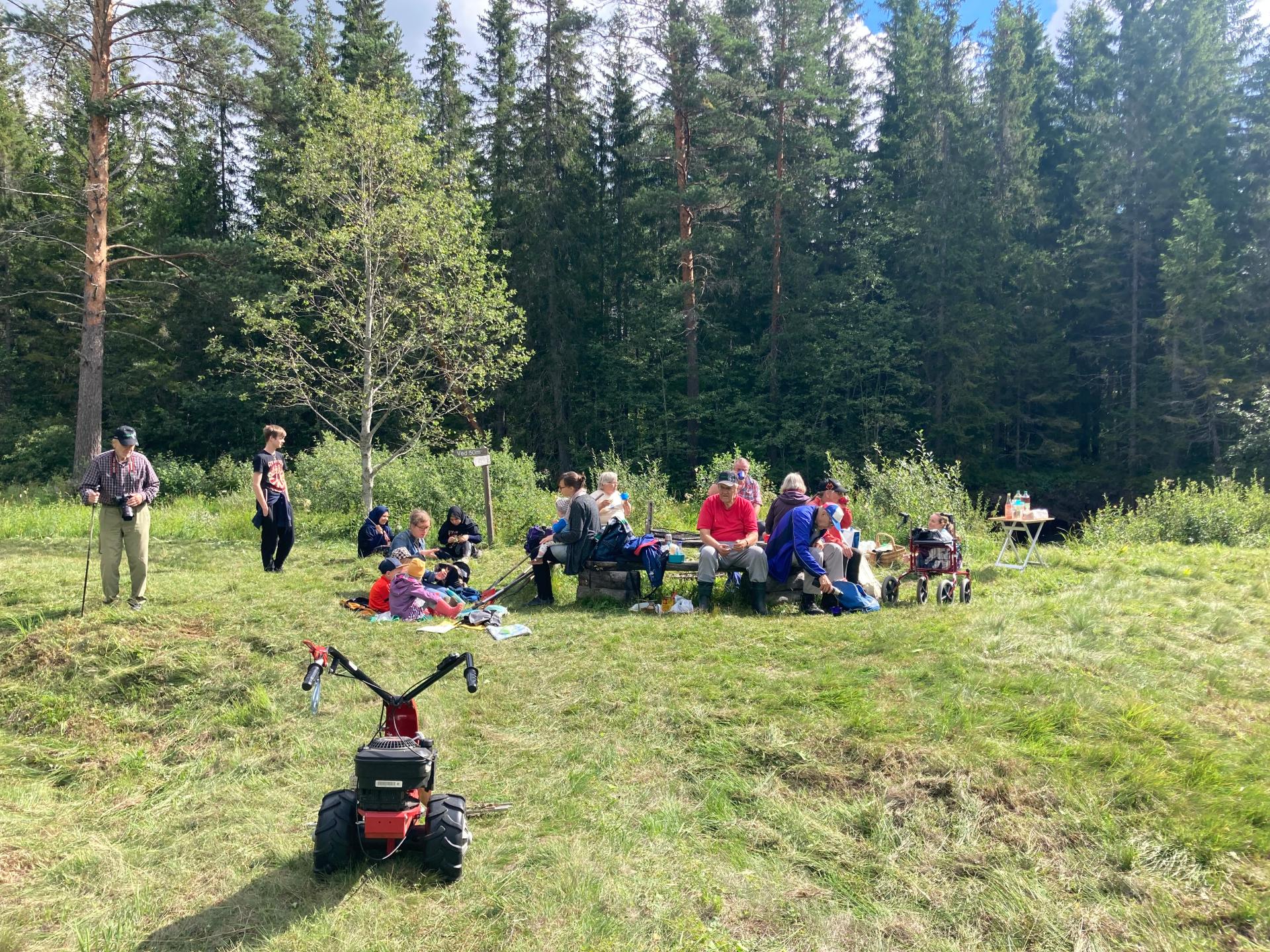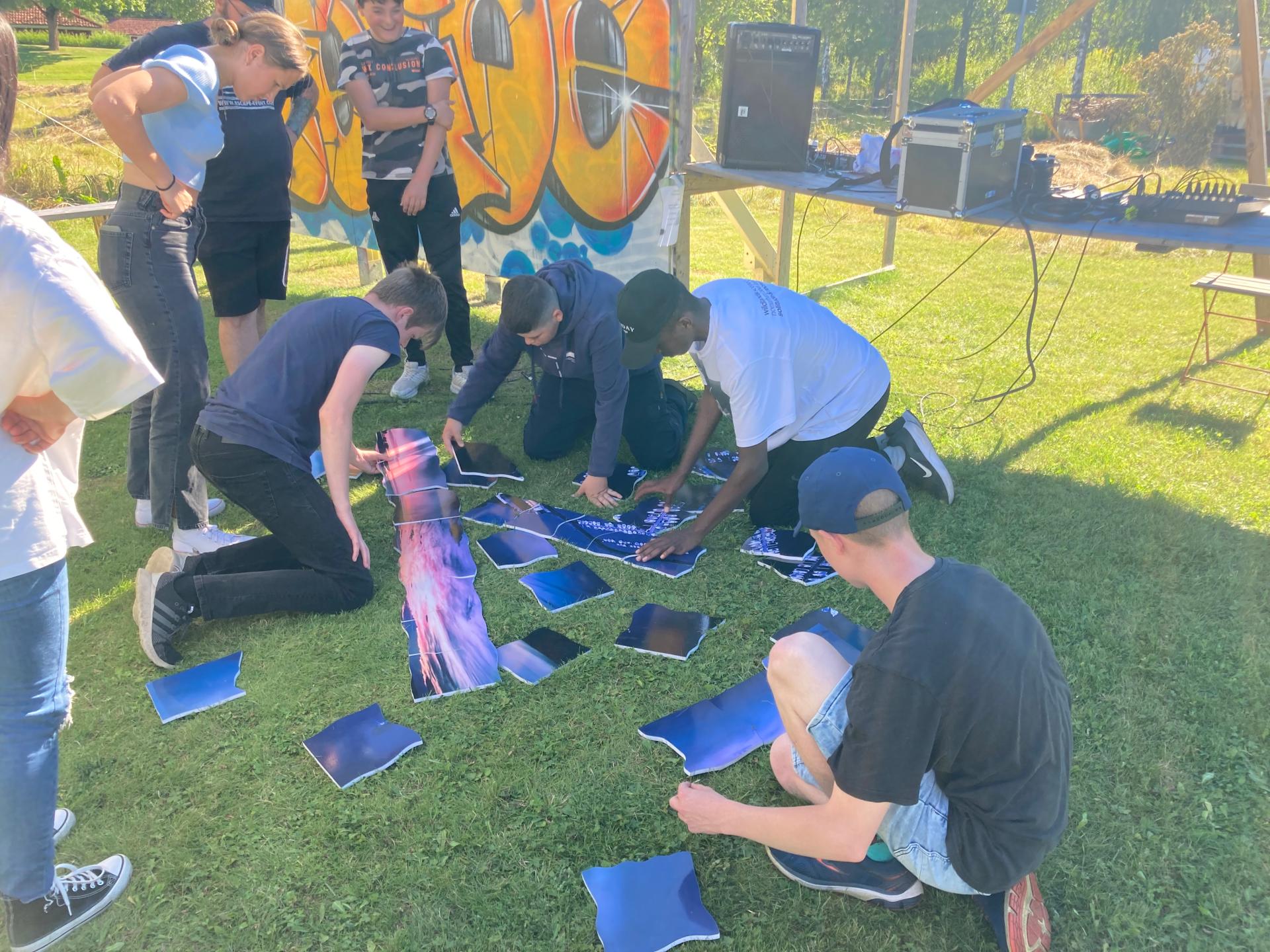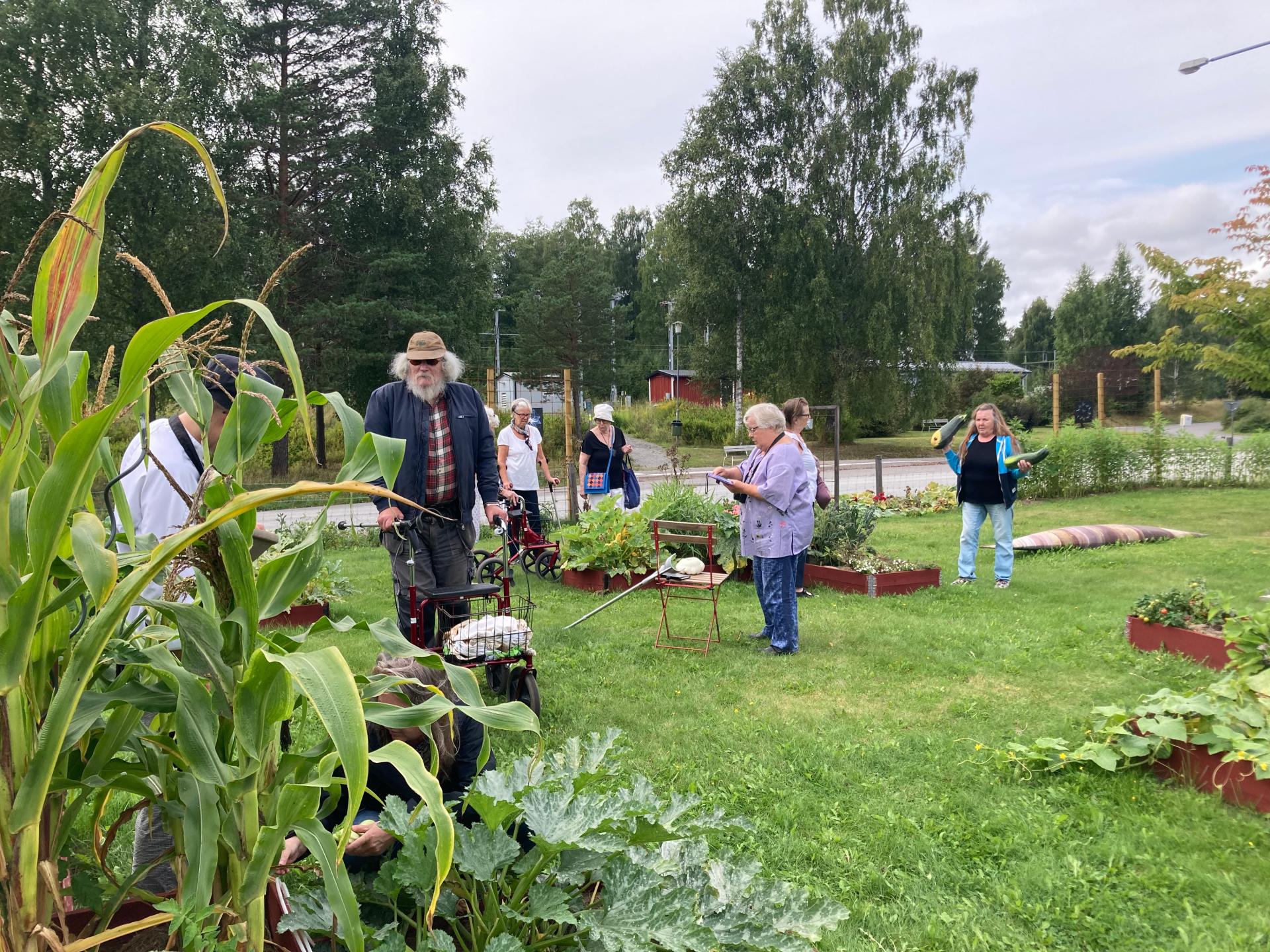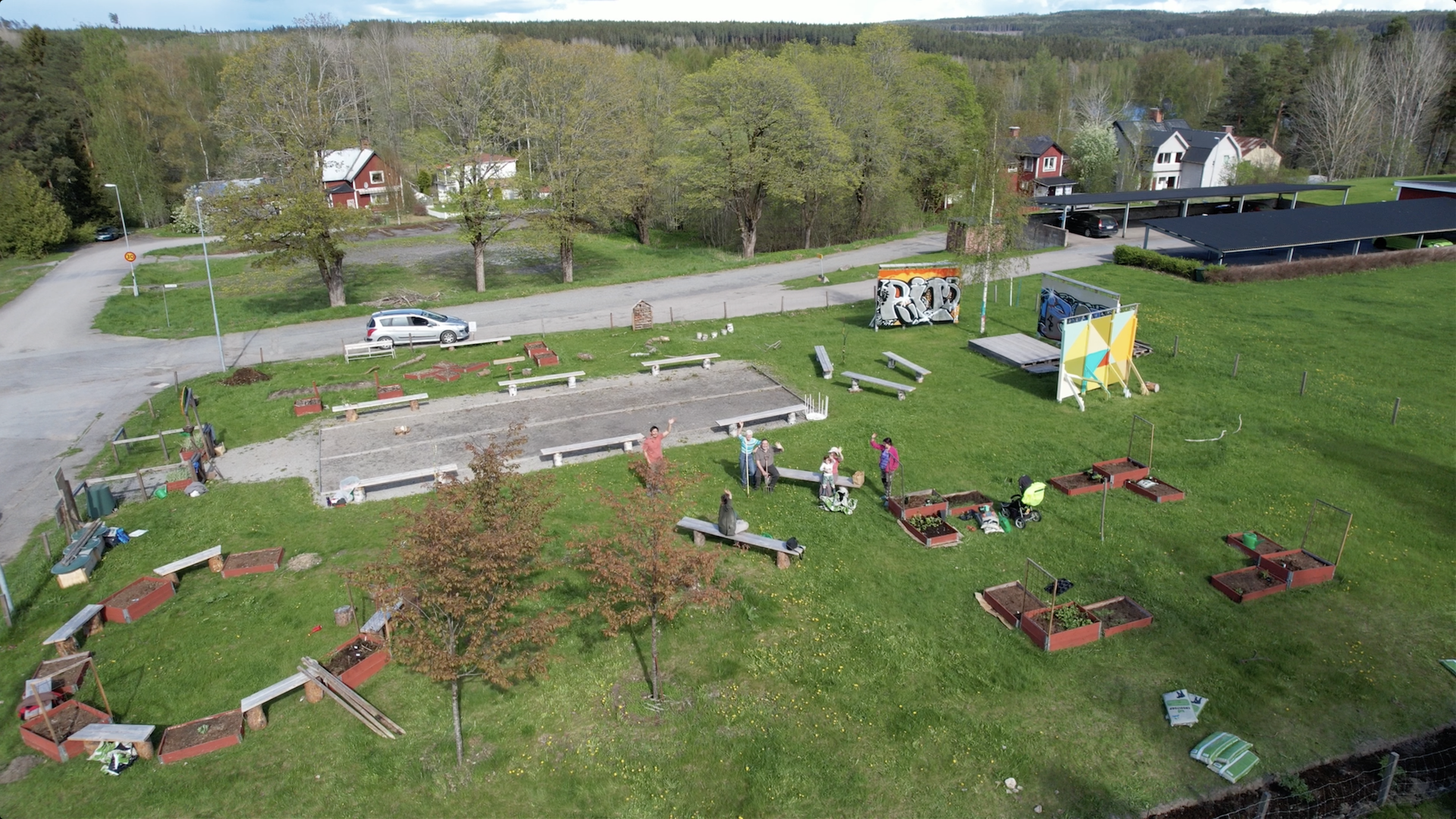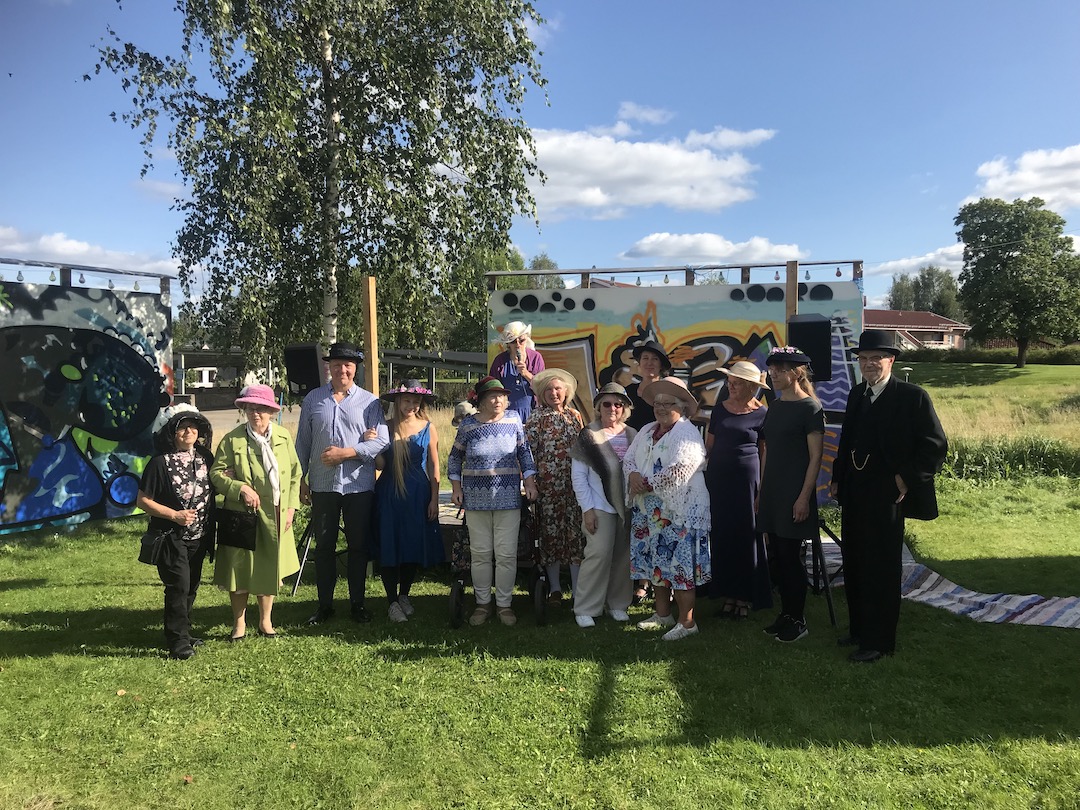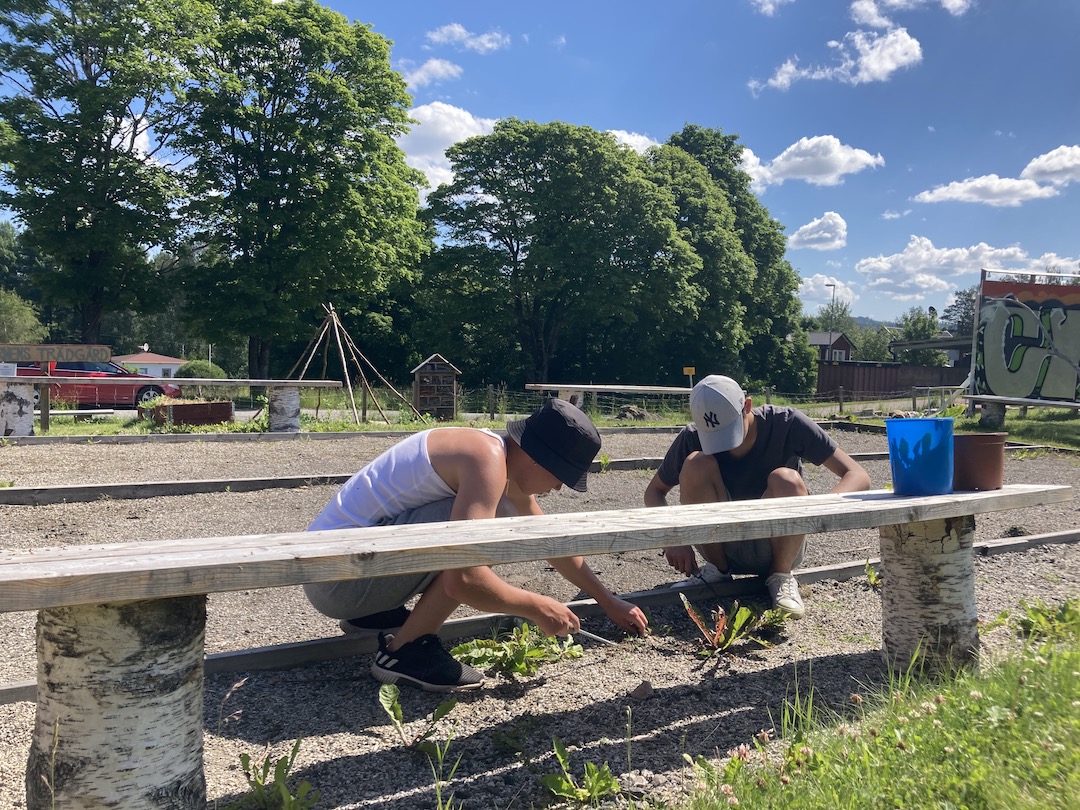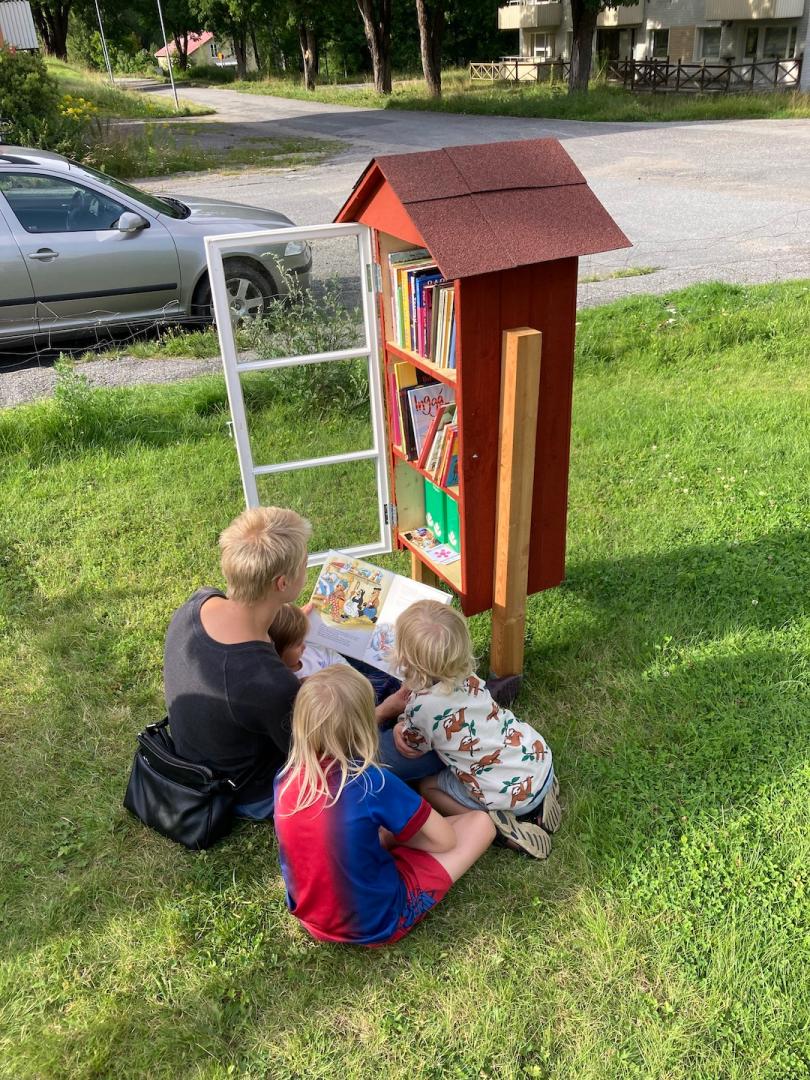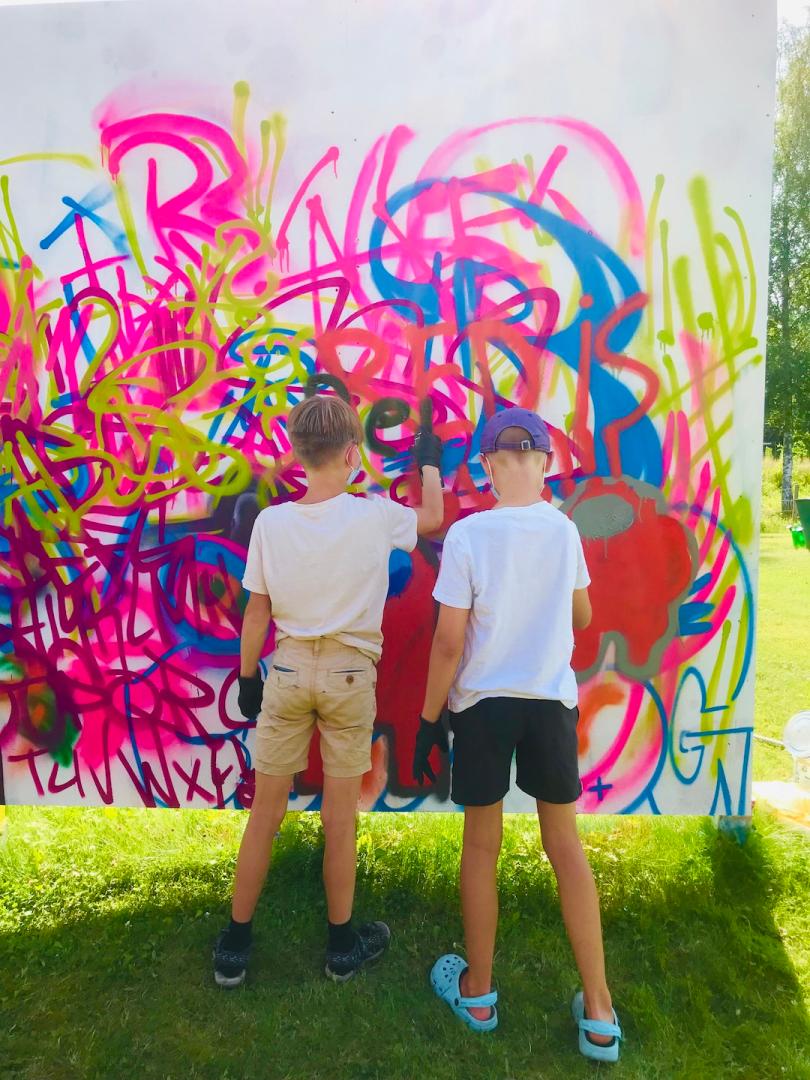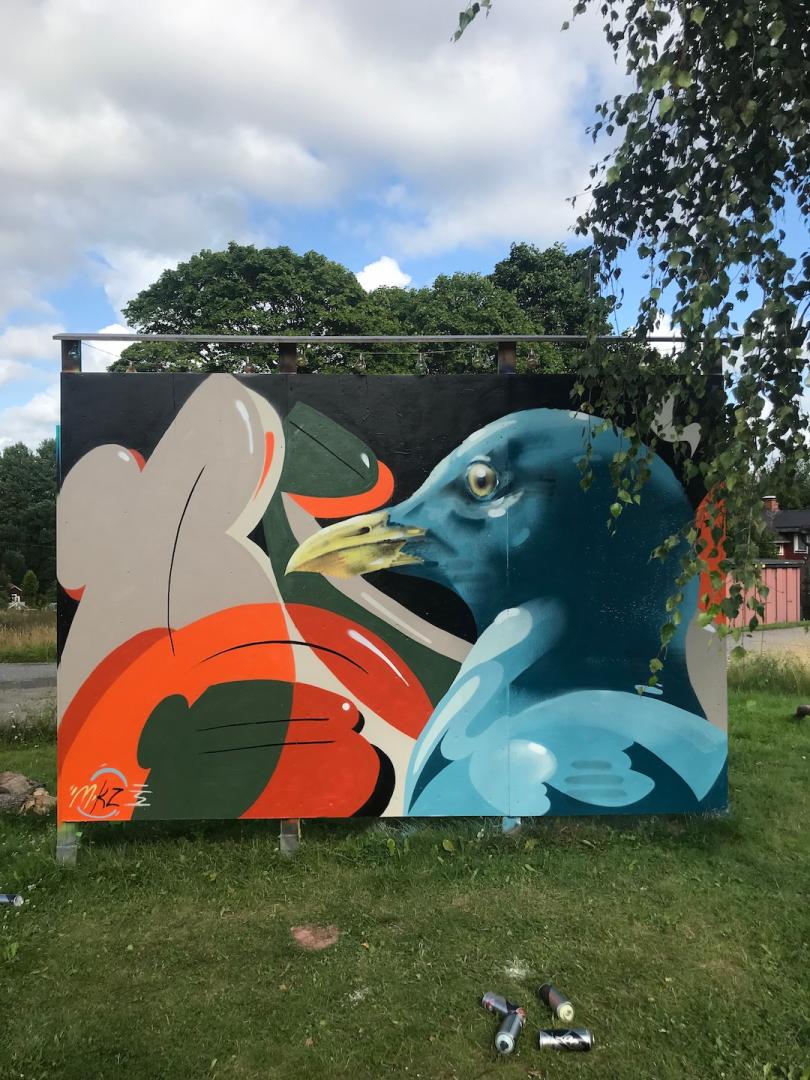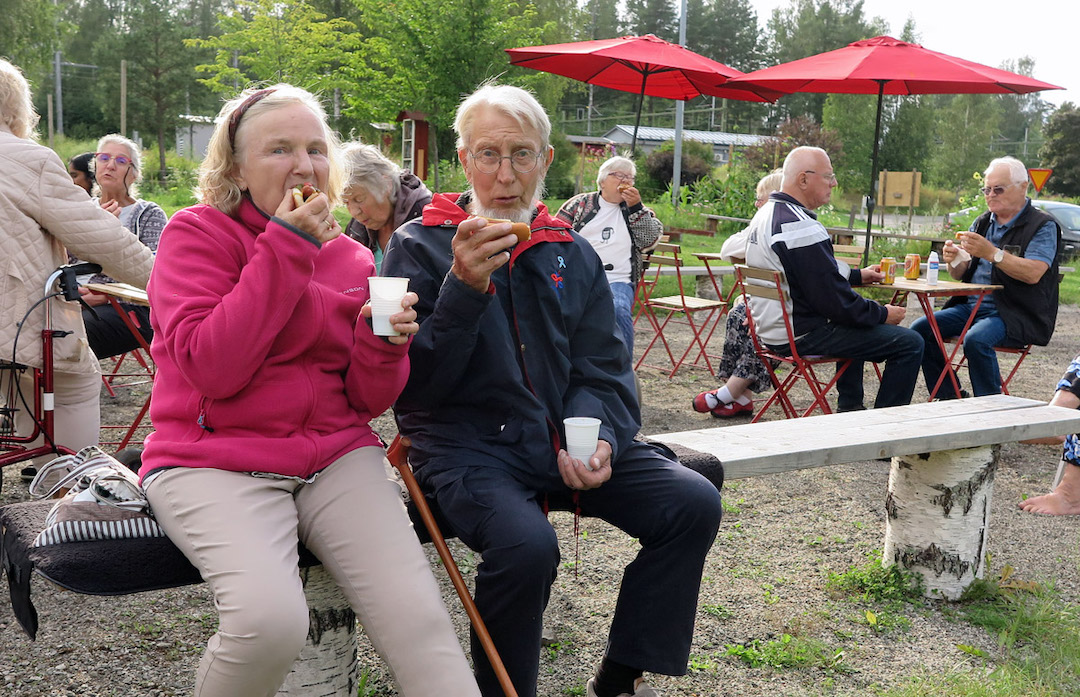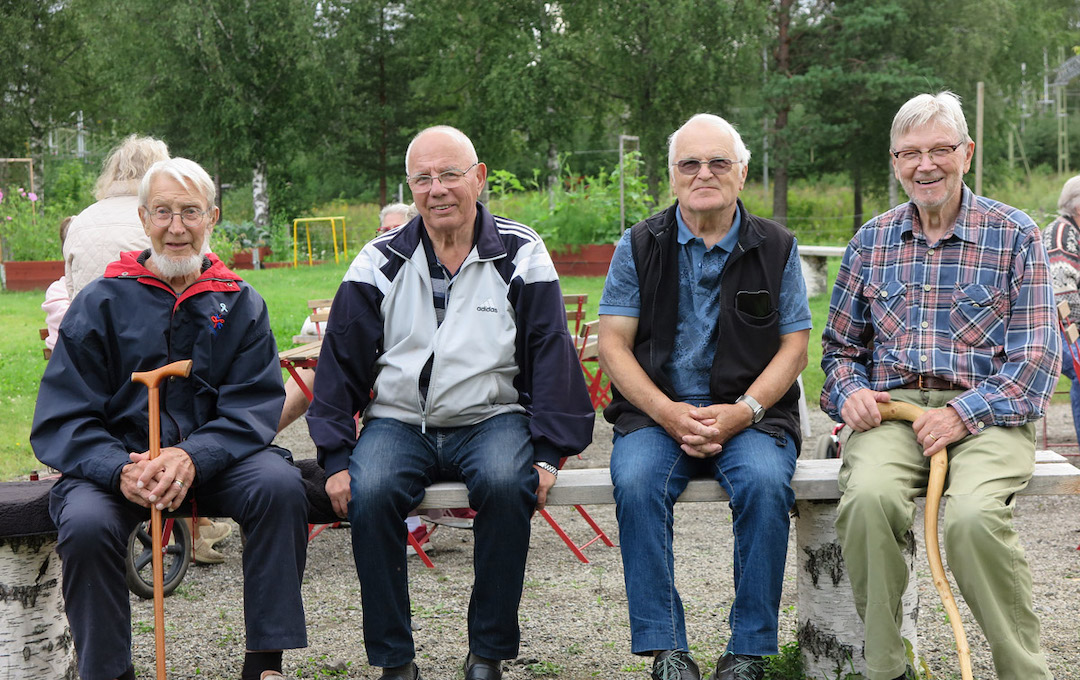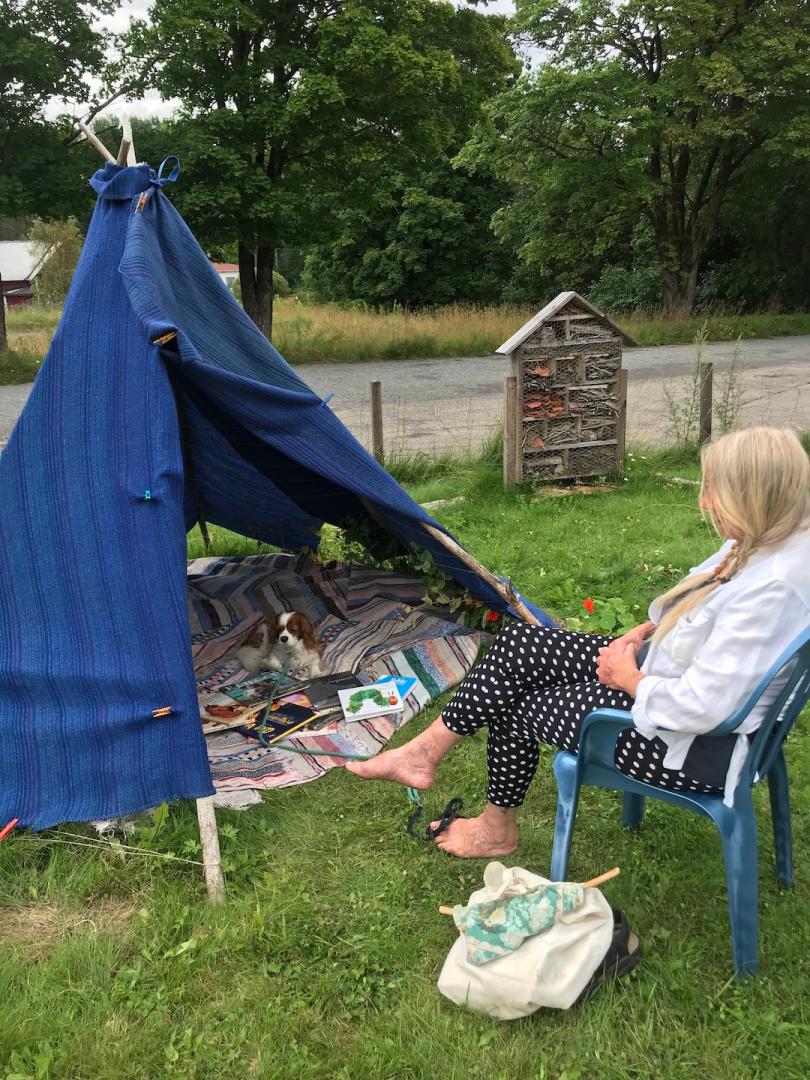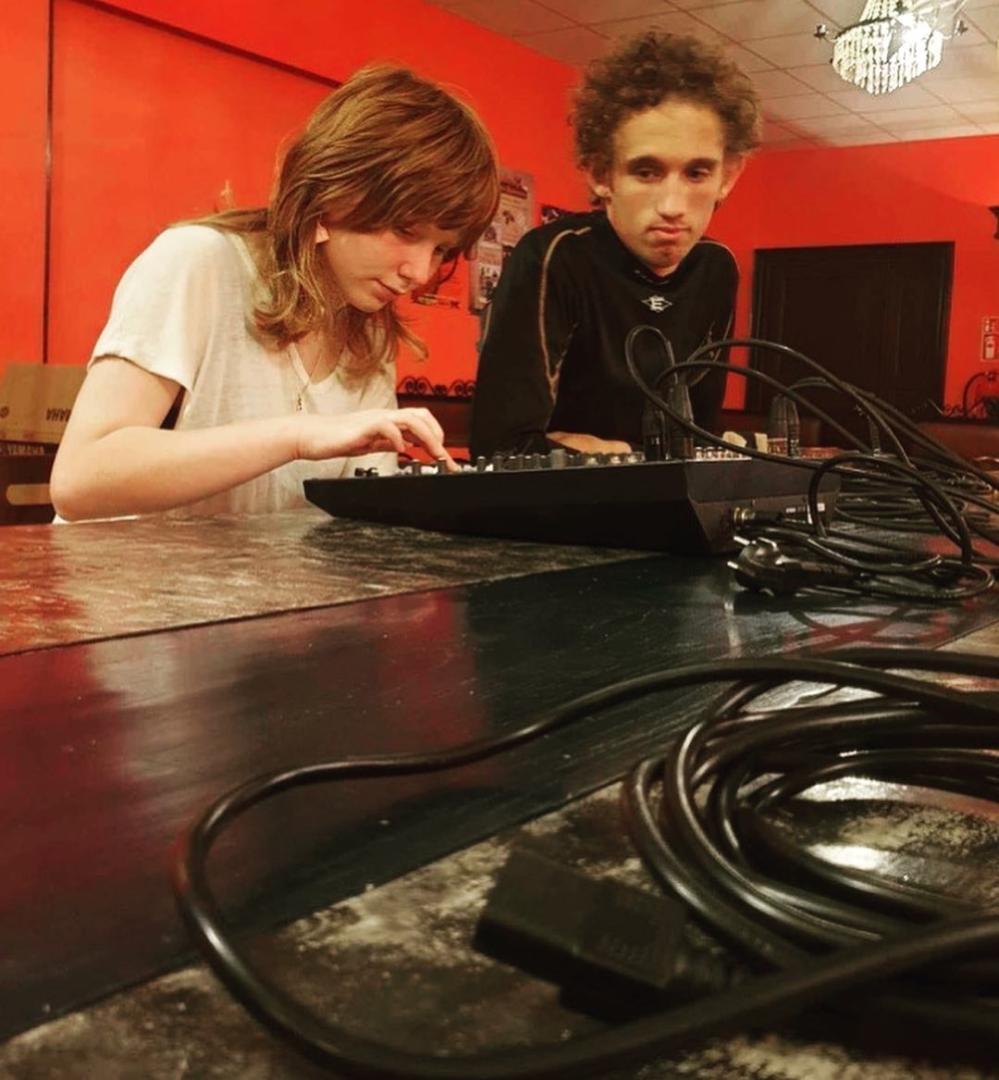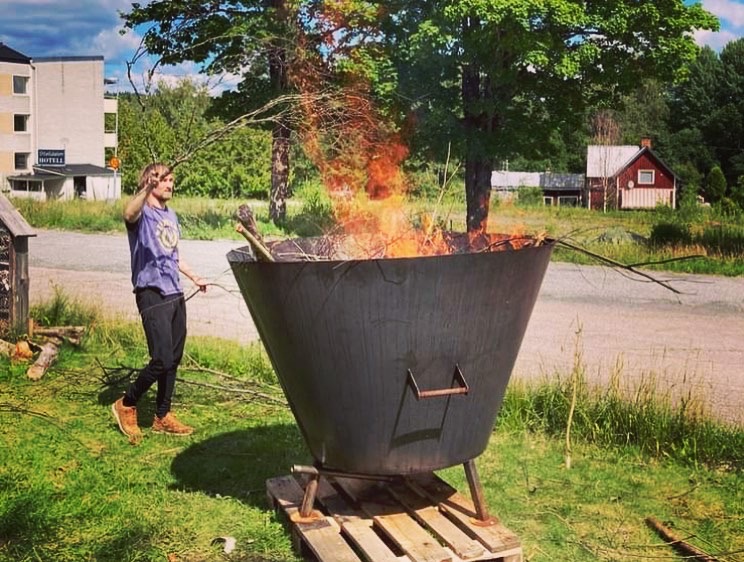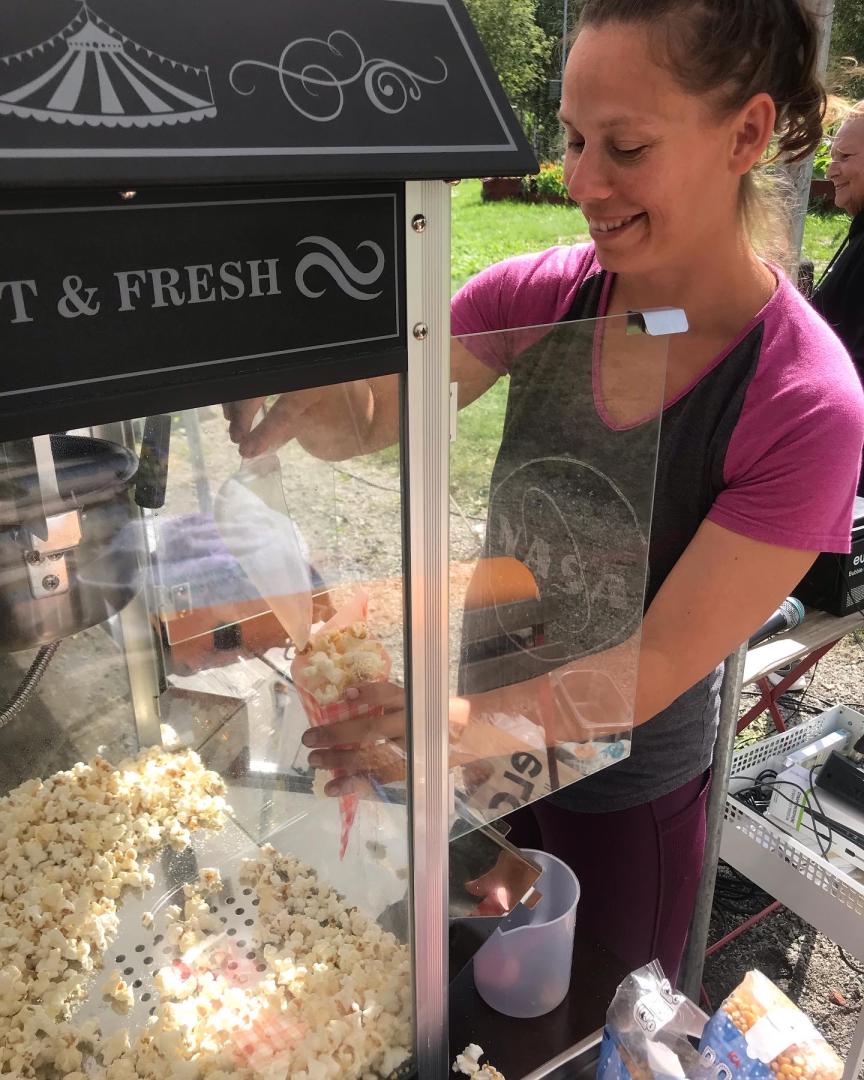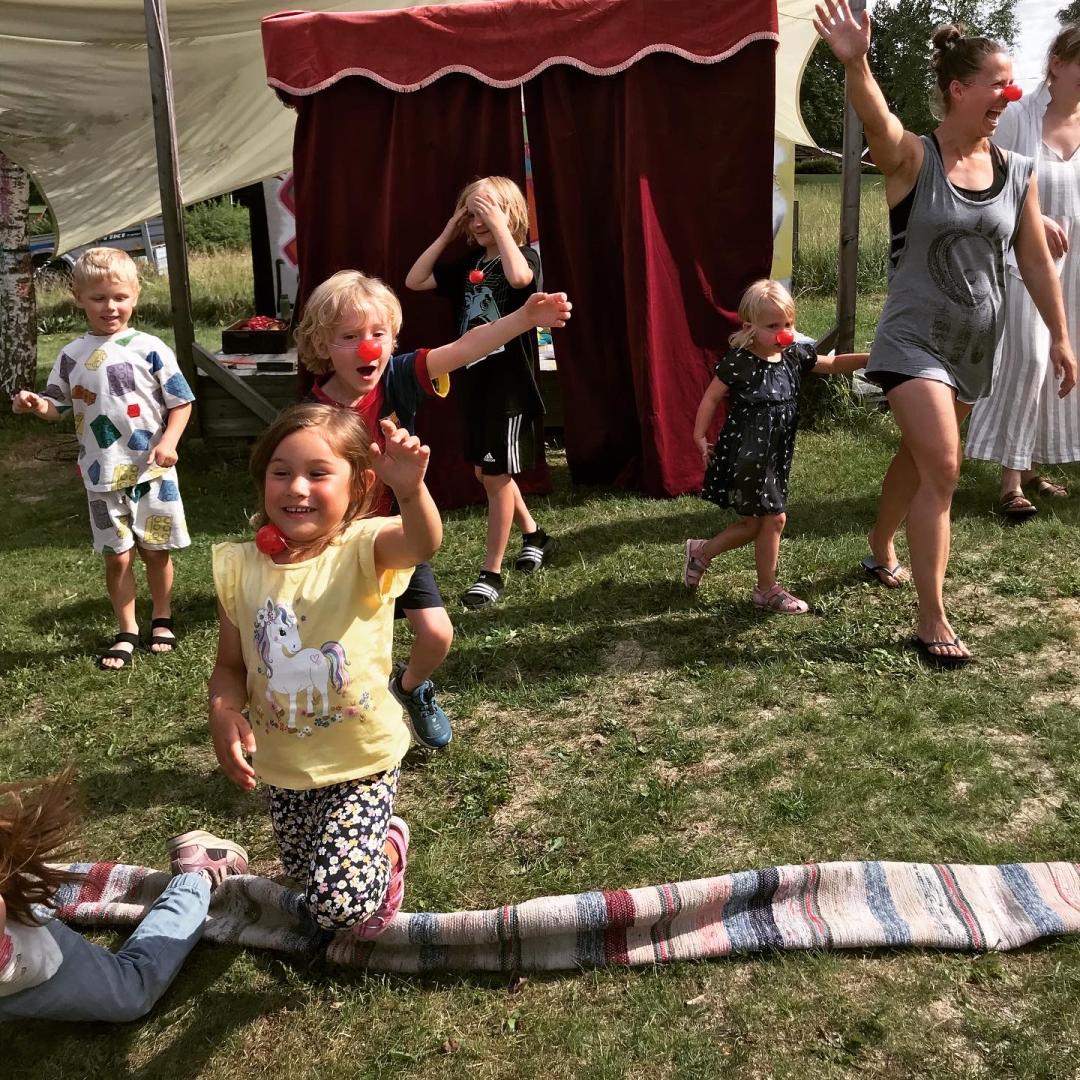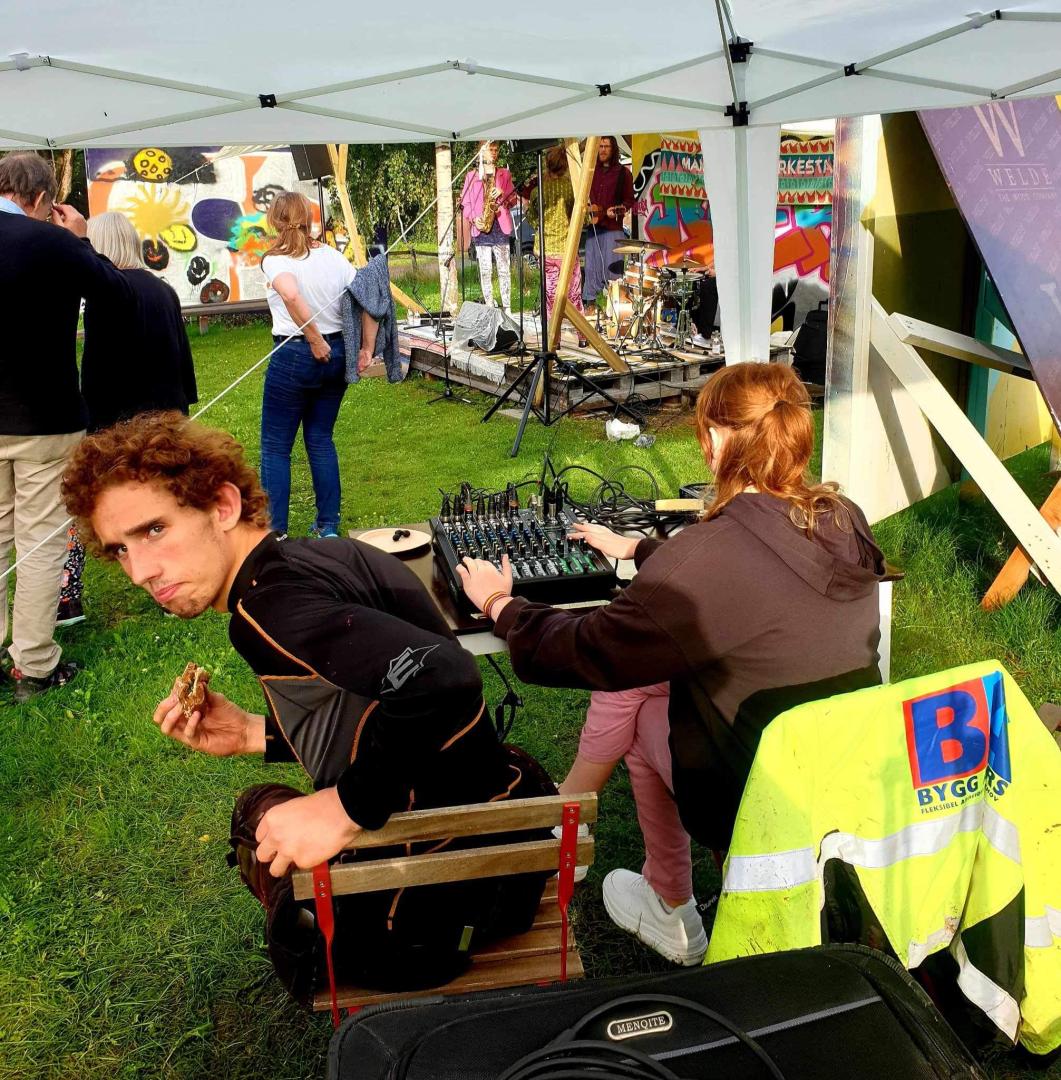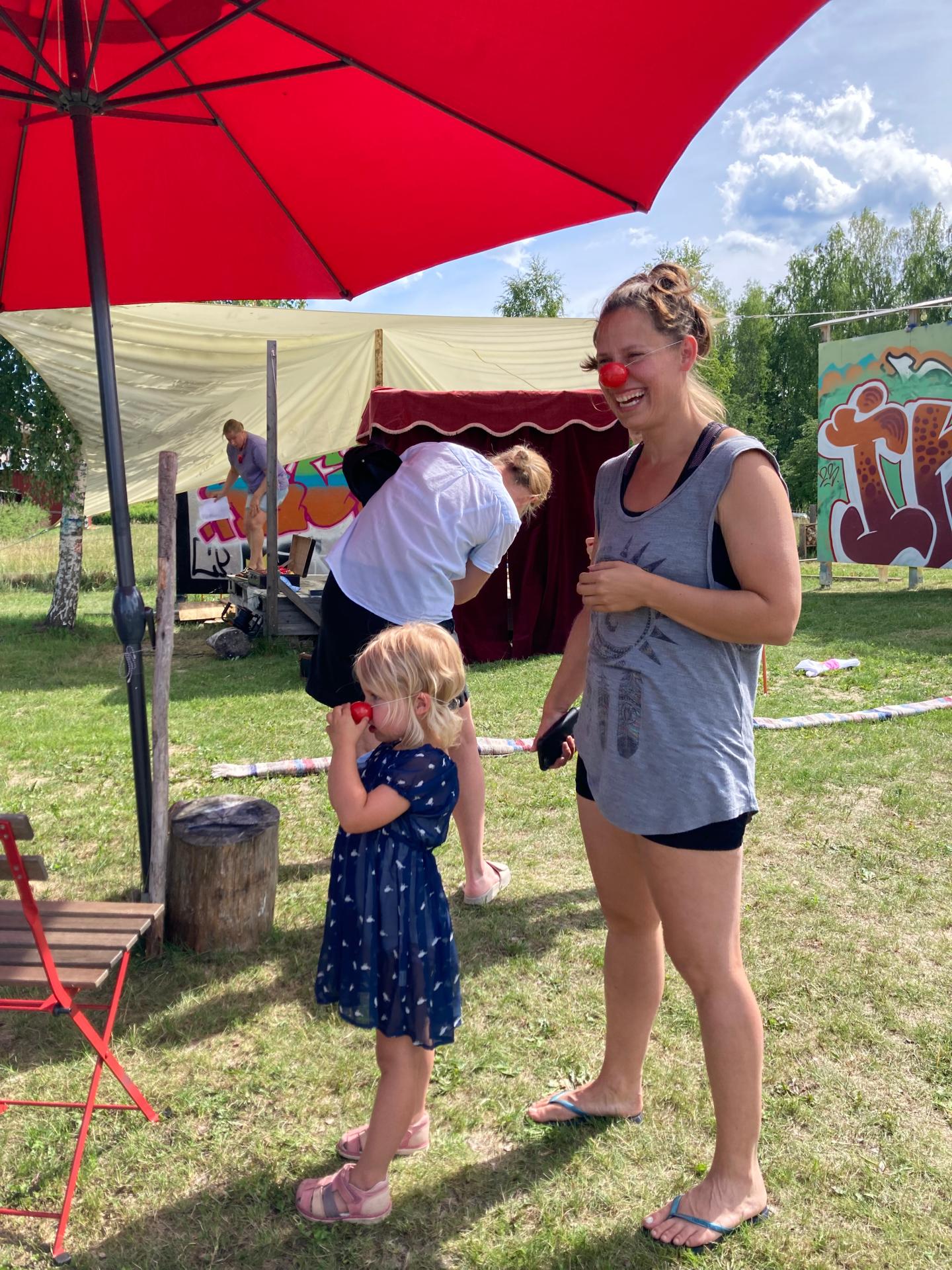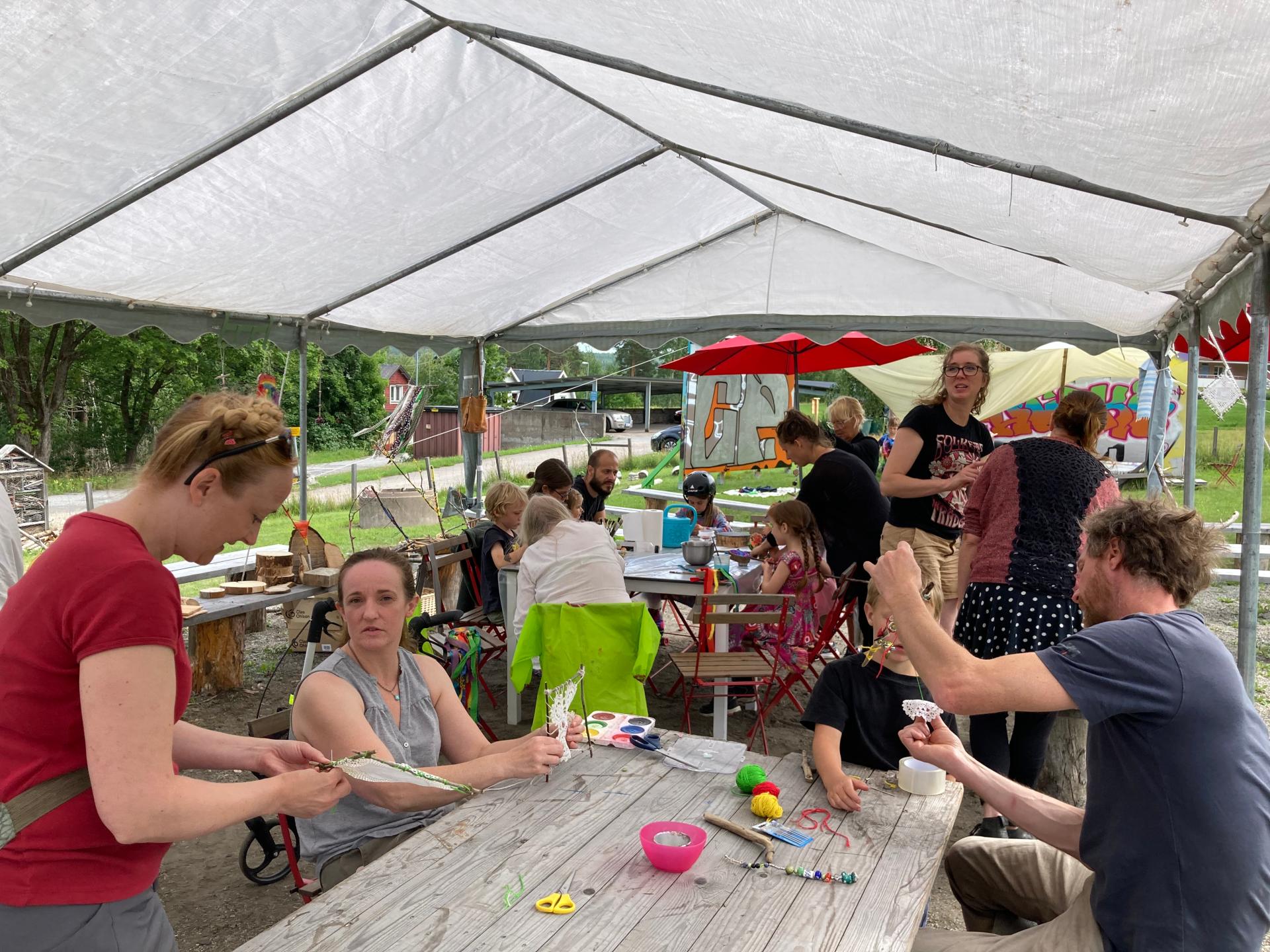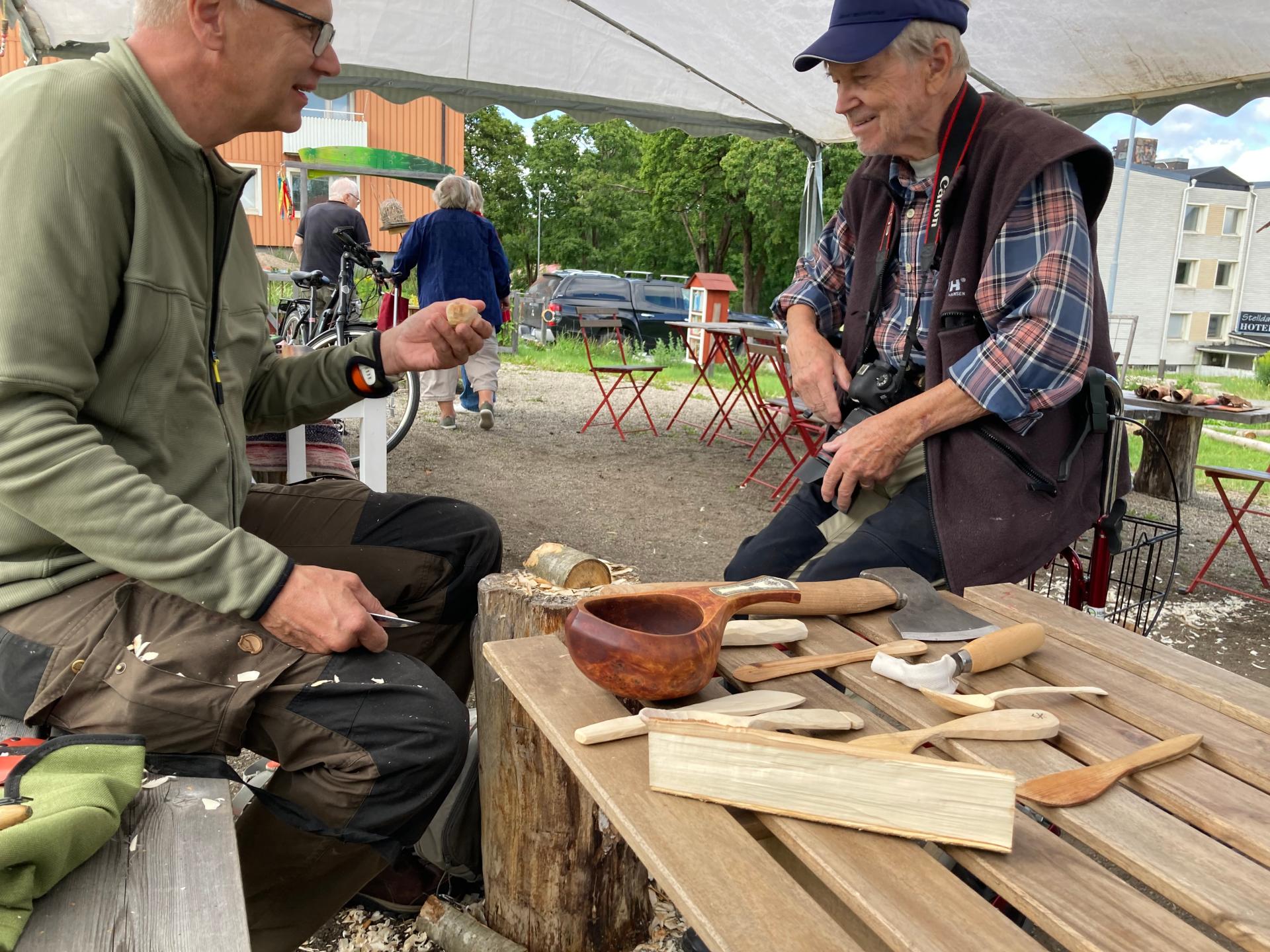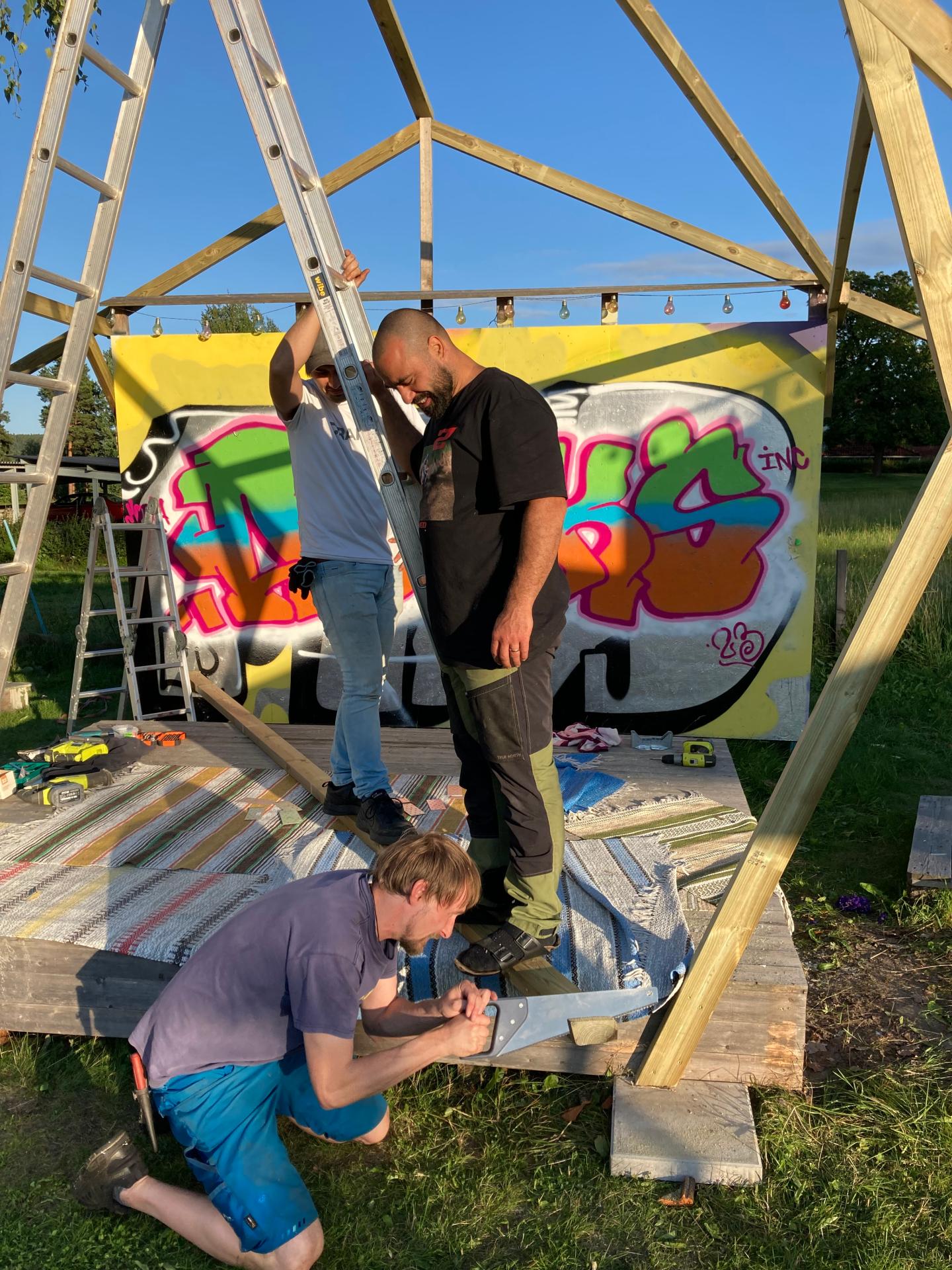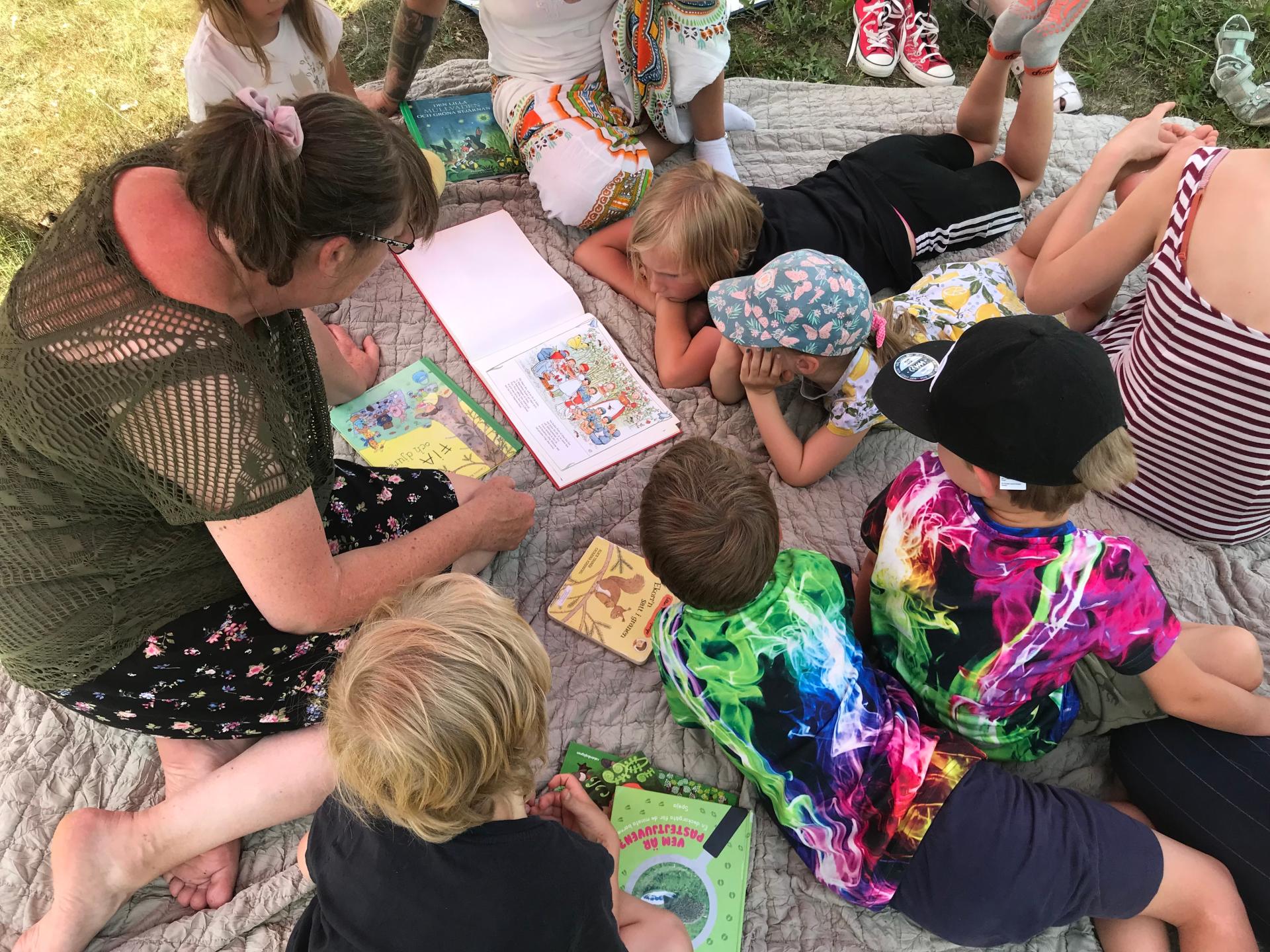Folkets Trädgård Ställdalen
Basic information
Project Title
Folkets Trädgård Ställdalen
Full project title
Folkets Trädgård Ställdalen (The People's Garden Ställdalen)
Category
Regaining a sense of belonging
Project Description
Folkets Trädgård serves as an inclusive meeting place for sustainable gardening, sharing culture, community dialogue and cultivating dreams. Our project focuses on all ages and interests. One of its main objectives is to organise cultural events to strengthen community, build trust and promote dialogue. The garden also serves as a symbolic and practical place to work on the 2030 Agenda and sustainable transition.
Geographical Scope
Local
Project Region
Ställdalen, Ljusnarsberg., Sweden
Urban or rural issues
Mainly rural
Physical or other transformations
It refers to other types of transformations (soft investment)
EU Programme or fund
No
Description of the project
Summary
Overall Aim:
Folkets Trädgård (FT) aims to create a sense of belonging and community engagement while promoting sustainability and inclusivity. It serves as a symbol of positive change and supports the goals of Agenda 2030.
Target Group(s):
FT welcomes individuals of all ages, genders, and backgrounds. It encourages broad community participation, including residents, local organizations and public institutions.
Specific Objective(s):
FT promotes community engagement through cultural events and dialogue, strengthening community bonds.
FT symbolizes positive change through its visible presence, highlighting the commitment to a sustainable and inclusive future.
The project supports Agenda 2030 by embodying sustainable practices and regenerative processes.
Achieved Outcomes (in the context of Regaining a sense of belonging):
Over a hundred community activities and events since 2020 in Ställdalen and its surroundings, attracting over 1000 visitors.
FT has fostered a strong sense of belonging, inclusivity, and community cohesion across different age groups and backgrounds.
The garden is a vibrant space for cultural events, encouraging positive inter-generational exchanges.
The involvement of the local pre-school highlights the educational impact and sense of belonging for children and their families.
FT's prominent location symbolizes a positive shift toward a more sustainable, inclusive, and resilient future of a vulnerable rural village.
Folkets Trädgård (FT) aims to create a sense of belonging and community engagement while promoting sustainability and inclusivity. It serves as a symbol of positive change and supports the goals of Agenda 2030.
Target Group(s):
FT welcomes individuals of all ages, genders, and backgrounds. It encourages broad community participation, including residents, local organizations and public institutions.
Specific Objective(s):
FT promotes community engagement through cultural events and dialogue, strengthening community bonds.
FT symbolizes positive change through its visible presence, highlighting the commitment to a sustainable and inclusive future.
The project supports Agenda 2030 by embodying sustainable practices and regenerative processes.
Achieved Outcomes (in the context of Regaining a sense of belonging):
Over a hundred community activities and events since 2020 in Ställdalen and its surroundings, attracting over 1000 visitors.
FT has fostered a strong sense of belonging, inclusivity, and community cohesion across different age groups and backgrounds.
The garden is a vibrant space for cultural events, encouraging positive inter-generational exchanges.
The involvement of the local pre-school highlights the educational impact and sense of belonging for children and their families.
FT's prominent location symbolizes a positive shift toward a more sustainable, inclusive, and resilient future of a vulnerable rural village.
Key objectives for sustainability
Key Objectives in Terms of Sustainability:
- Promoting Sustainable Practices: The project aimed to encourage sustainable gardening, emphasizing organic cultivation, minimal resource consumption, and responsible waste management.
Symbolizing Sustainable Transformation: Folkets Trädgård aimed to symbolize a transition towards a more sustainable and eco-friendly future for local communities.
Achievements in Terms of Sustainability:
Sustainable Gardening Practices: FT has successfully implemented sustainable gardening practices, including organic farming, waste reduction, and eco-friendly materials, leading to reduced environmental impact.
Regenerative Landscape: The project has revitalized the local landscape, promoting biodiversity and pollination.
Educational Platform: FT serves as an educational space, instilling community values in the village, especially young children.
Community-Led Sustainability: The project showcases the potential of community-driven initiatives in promoting sustainable living together with the people around you.
Exemplary Aspects in Sustainability:
Community-Centered Sustainability: FT demonstrates how community-led efforts can effectively promote sustainability and inspire eco-conscious living.
Visible Change: The transformation of an underused area into a thriving garden visibly represents sustainability in action.
Educational Focus: Involving the local preschool and summer workers from the local school exemplifies long-term investment in sustainability education.
Inclusive Sustainability: FT's inclusivity ensures accessibility to sustainability practices for all community members. Including the possibility to borrow a kontiki kiln to produce biochar from your own garden waste for revitalising the earth.
- Promoting Sustainable Practices: The project aimed to encourage sustainable gardening, emphasizing organic cultivation, minimal resource consumption, and responsible waste management.
Symbolizing Sustainable Transformation: Folkets Trädgård aimed to symbolize a transition towards a more sustainable and eco-friendly future for local communities.
Achievements in Terms of Sustainability:
Sustainable Gardening Practices: FT has successfully implemented sustainable gardening practices, including organic farming, waste reduction, and eco-friendly materials, leading to reduced environmental impact.
Regenerative Landscape: The project has revitalized the local landscape, promoting biodiversity and pollination.
Educational Platform: FT serves as an educational space, instilling community values in the village, especially young children.
Community-Led Sustainability: The project showcases the potential of community-driven initiatives in promoting sustainable living together with the people around you.
Exemplary Aspects in Sustainability:
Community-Centered Sustainability: FT demonstrates how community-led efforts can effectively promote sustainability and inspire eco-conscious living.
Visible Change: The transformation of an underused area into a thriving garden visibly represents sustainability in action.
Educational Focus: Involving the local preschool and summer workers from the local school exemplifies long-term investment in sustainability education.
Inclusive Sustainability: FT's inclusivity ensures accessibility to sustainability practices for all community members. Including the possibility to borrow a kontiki kiln to produce biochar from your own garden waste for revitalising the earth.
Key objectives for aesthetics and quality
Creating Aesthetically Pleasing Spaces: The project aimed to design and create visually appealing spaces within the garden.
Fostering Cultural Engagement: Folkets Trädgård sought to serve as a platform for cultural exchange, hosting events and activities that celebrate local and foreign traditions, art, and creative expression.
Achievements in Terms of Aesthetics and Quality of Experience:
Cultural Engagement Events: The garden hosts various cultural events, such as art exhibitions, performances, and workshops, promoting traditions and artistic expression. This fosters a rich cultural experience for visitors and participants.
Engagement of Local Artists and Artisans: FT involves local artists and artisans in various projects within the garden, showcasing their work and promoting local creativity.
Community-Designed Spaces: The involvement of community members in the design and maintenance of certain areas within the garden fosters a sense of ownership and cultural representation.
Exemplary Aspects in Aesthetics and Quality of Experience:
Integrated Aesthetics: Folkets Trädgård successfully harmonizes natural elements with cultural and artistic features, creating an inviting and aesthetically pleasing environment. The design and layout promote a sense of beauty and cultural significance.
Cultural Celebration: The garden serves as a cultural hub, hosting events that celebrate traditions and creative expressions. This engagement fosters a vibrant cultural experience for visitors and community members.
Local Artistic Engagement: Involving local artists not only promotes their work but also enhances the garden's cultural significance.
Fostering Cultural Engagement: Folkets Trädgård sought to serve as a platform for cultural exchange, hosting events and activities that celebrate local and foreign traditions, art, and creative expression.
Achievements in Terms of Aesthetics and Quality of Experience:
Cultural Engagement Events: The garden hosts various cultural events, such as art exhibitions, performances, and workshops, promoting traditions and artistic expression. This fosters a rich cultural experience for visitors and participants.
Engagement of Local Artists and Artisans: FT involves local artists and artisans in various projects within the garden, showcasing their work and promoting local creativity.
Community-Designed Spaces: The involvement of community members in the design and maintenance of certain areas within the garden fosters a sense of ownership and cultural representation.
Exemplary Aspects in Aesthetics and Quality of Experience:
Integrated Aesthetics: Folkets Trädgård successfully harmonizes natural elements with cultural and artistic features, creating an inviting and aesthetically pleasing environment. The design and layout promote a sense of beauty and cultural significance.
Cultural Celebration: The garden serves as a cultural hub, hosting events that celebrate traditions and creative expressions. This engagement fosters a vibrant cultural experience for visitors and community members.
Local Artistic Engagement: Involving local artists not only promotes their work but also enhances the garden's cultural significance.
Key objectives for inclusion
Key Objectives in Terms of Aesthetics and Quality of Experience:
- Creating Aesthetically Pleasing Spaces: The project aimed to design and create visually appealing spaces within the garden that evoke a sense of beauty and cultural significance.
- Fostering Cultural Engagement: Folkets Trädgård sought to serve as a platform for cultural exchange, hosting events and activities that celebrate local and foreign traditions, art, and creative expression.
Achievements in Terms of Aesthetics and Quality of Experience:
- Visually Pleasing Design: FT successfully implemented an aesthetically pleasing garden design that integrates nature, color, and landscaping to create an inviting environment.
- Cultural Engagement Events: The garden hosts cultural events, such as art exhibitions, performances, and workshops, fostering a rich cultural experience for visitors and participants.
- Engagement of Local Artists and Artisans: FT involves local artists and experts in various projects, showcasing their work and promoting local creativity.
- Community-Designed Spaces: The garden's community involvement in designing and maintaining specific areas fosters cultural representation and a sense of ownership.
Exemplary Aspects in Aesthetics and Quality of Experience:
- Integrated Aesthetics: Folkets Trädgård successfully harmonizes natural elements with cultural and artistic features. It connects its activities to themes that connect with the local and natural context such as its surrounding forests.
- Cultural Celebration: The garden serves as a vibrant cultural hub, promoting local and foreign traditions and creative expression, offering a rich cultural experience.
- Local Artistic Engagement: Involving local artists enriches the garden's cultural significance.
- Community Involvement in Design: Engaging community members in garden design fosters a sense of cultural representation and pride, emphasizing a collective cultural identity.
- Creating Aesthetically Pleasing Spaces: The project aimed to design and create visually appealing spaces within the garden that evoke a sense of beauty and cultural significance.
- Fostering Cultural Engagement: Folkets Trädgård sought to serve as a platform for cultural exchange, hosting events and activities that celebrate local and foreign traditions, art, and creative expression.
Achievements in Terms of Aesthetics and Quality of Experience:
- Visually Pleasing Design: FT successfully implemented an aesthetically pleasing garden design that integrates nature, color, and landscaping to create an inviting environment.
- Cultural Engagement Events: The garden hosts cultural events, such as art exhibitions, performances, and workshops, fostering a rich cultural experience for visitors and participants.
- Engagement of Local Artists and Artisans: FT involves local artists and experts in various projects, showcasing their work and promoting local creativity.
- Community-Designed Spaces: The garden's community involvement in designing and maintaining specific areas fosters cultural representation and a sense of ownership.
Exemplary Aspects in Aesthetics and Quality of Experience:
- Integrated Aesthetics: Folkets Trädgård successfully harmonizes natural elements with cultural and artistic features. It connects its activities to themes that connect with the local and natural context such as its surrounding forests.
- Cultural Celebration: The garden serves as a vibrant cultural hub, promoting local and foreign traditions and creative expression, offering a rich cultural experience.
- Local Artistic Engagement: Involving local artists enriches the garden's cultural significance.
- Community Involvement in Design: Engaging community members in garden design fosters a sense of cultural representation and pride, emphasizing a collective cultural identity.
Results in relation to category
Direct Beneficiaries:
Community Cohesion: FT's community events have drawn over a thousand visitors in the past three years, forging strong bonds among residents of all ages and backgrounds, fostering inclusivity and community cohesion.
Cultural Celebrations: FT acts as a vibrant hub for cultural events, promoting local traditions, arts, and cultural expressions, enriching the community's heritage, and creating a shared cultural identity. These events strengthen community ties and cultural pride while encouraging inter-generational exchanges.
Educational Benefits: FT focus on educational practices allows introducing children and their families to sustainability and community engagement values from an early age, shaping responsible, informed, and community-oriented future citizens.
Indirect Beneficiaries:
Symbol of Positive Change: FT's prominent presence in a vulnerable rural village symbolizes a shift towards a more sustainable and inclusive future, inspiring optimism and motivation within the broader community, acting as a catalyst for positive change and hope.
Rural Revitalization: FT's innovative hyper-local development approach serves as a model for addressing rural development challenges in other regions facing depopulation and economic difficulties, offering a path to reverse negative development trends and revitalize communities.
Cultural Preservation: FT's dedication to celebrating and preserving local culture indirectly contributes to cultural preservation efforts beyond its community, reaching neighboring areas and the wider region, safeguarding cultural traditions and promoting cultural diversity.
Empowerment of Community-Driven Initiatives: FT's community-driven approach, combined with its success in sustainability, inclusivity, and regenerative practices, inspires other communities to take ownership of their development, fostering a grassroots movement of empowerment and transformation with far-reaching consequences.
Community Cohesion: FT's community events have drawn over a thousand visitors in the past three years, forging strong bonds among residents of all ages and backgrounds, fostering inclusivity and community cohesion.
Cultural Celebrations: FT acts as a vibrant hub for cultural events, promoting local traditions, arts, and cultural expressions, enriching the community's heritage, and creating a shared cultural identity. These events strengthen community ties and cultural pride while encouraging inter-generational exchanges.
Educational Benefits: FT focus on educational practices allows introducing children and their families to sustainability and community engagement values from an early age, shaping responsible, informed, and community-oriented future citizens.
Indirect Beneficiaries:
Symbol of Positive Change: FT's prominent presence in a vulnerable rural village symbolizes a shift towards a more sustainable and inclusive future, inspiring optimism and motivation within the broader community, acting as a catalyst for positive change and hope.
Rural Revitalization: FT's innovative hyper-local development approach serves as a model for addressing rural development challenges in other regions facing depopulation and economic difficulties, offering a path to reverse negative development trends and revitalize communities.
Cultural Preservation: FT's dedication to celebrating and preserving local culture indirectly contributes to cultural preservation efforts beyond its community, reaching neighboring areas and the wider region, safeguarding cultural traditions and promoting cultural diversity.
Empowerment of Community-Driven Initiatives: FT's community-driven approach, combined with its success in sustainability, inclusivity, and regenerative practices, inspires other communities to take ownership of their development, fostering a grassroots movement of empowerment and transformation with far-reaching consequences.
How Citizens benefit
1. Collaborative Design and Planning:
Role: Citizens and civil society actively participated in the garden's initial design and planning, contributing ideas on layout and features.
Impact: This involvement created a sense of ownership and community connection, influencing the garden's design and fostering ongoing enthusiasm for the project.
2. Community Gardening and Maintenance:
Role: Local residents and volunteers from civil society organizations engage in the garden's maintenance, contributing to planting and general upkeep.
Impact: Citizen involvement in maintenance nurtures a sense of stewardship, strengthens community bonds, and ensures the garden's vitality.
3. Cultural and Artistic Contributions:
Role: Local artists and cultural enthusiasts actively contribute to the garden by showcasing their work and organizing cultural events.
Impact: This involvement has transformed the garden into a vibrant cultural hub, enriching the community's cultural life and providing a platform for artistic expression.
4. Educational Engagement:
Role: Educational institutions, including Förskolan Åstugan, actively engage with the garden, incorporating it into their educational activities.
Impact: The garden empowers young learners with values of sustainability, community involvement, and responsibility toward their environment.
Overall Impact:
Citizen and civil society involvement has turned Folkets Trädgård into a symbol of collective effort, trust, and shared commitment to sustainability and cultural celebration. It fosters a profound sense of belonging within the community, creating a vibrant, inclusive, and educational space that enriches the cultural life of the local residents.
Role: Citizens and civil society actively participated in the garden's initial design and planning, contributing ideas on layout and features.
Impact: This involvement created a sense of ownership and community connection, influencing the garden's design and fostering ongoing enthusiasm for the project.
2. Community Gardening and Maintenance:
Role: Local residents and volunteers from civil society organizations engage in the garden's maintenance, contributing to planting and general upkeep.
Impact: Citizen involvement in maintenance nurtures a sense of stewardship, strengthens community bonds, and ensures the garden's vitality.
3. Cultural and Artistic Contributions:
Role: Local artists and cultural enthusiasts actively contribute to the garden by showcasing their work and organizing cultural events.
Impact: This involvement has transformed the garden into a vibrant cultural hub, enriching the community's cultural life and providing a platform for artistic expression.
4. Educational Engagement:
Role: Educational institutions, including Förskolan Åstugan, actively engage with the garden, incorporating it into their educational activities.
Impact: The garden empowers young learners with values of sustainability, community involvement, and responsibility toward their environment.
Overall Impact:
Citizen and civil society involvement has turned Folkets Trädgård into a symbol of collective effort, trust, and shared commitment to sustainability and cultural celebration. It fosters a profound sense of belonging within the community, creating a vibrant, inclusive, and educational space that enriches the cultural life of the local residents.
Physical or other transformations
It refers to other types of transformations (soft investment)
Innovative character
1. Hyper-Local Collaboration with Limited Resources:
Innovation: FT's focus on hyper-local development with minimal resources represents a unique approach to community improvement. This project demonstrates that innovative, positive change can occur even in small, vulnerable rural villages where resources are limited. It showcases the potential for communities to transform a negative development spiral into a positive one through local collaboration and innovative thinking.
2. Holistic Approach and Multigenerational Integration:
Innovation: FT's holistic approach integrates long-term efforts with the education of children and youngsters, emphasizing the meetings of different generations. This comprehensive perspective goes beyond traditional community projects that often have a more singular focus, neglecting the broader societal impact. FT bridges generations and nurtures a sense of belonging across age groups, fostering social cohesion.
3. Contemporary and Future-Relevant Topics:
Innovation: FT stands out by addressing contemporary and future-relevant topics. It offers a platform for discussions and events that focus on issues of sustainability, inclusivity, and the broader concerns of today's world and the future. The garden serves as a symbol for sustainable and organic growth, providing a tangible representation of these critical values.
In summary, Folkets Trädgård's innovative character is exemplified by its hyper-local approach, holistic integration of generations, and its dedication to addressing pressing contemporary and future challenges. It serves as a beacon of hope for small, vulnerable rural villages, showcasing that innovative thinking and community engagement can turn the tides of development into a positive direction, even with limited resources.
Innovation: FT's focus on hyper-local development with minimal resources represents a unique approach to community improvement. This project demonstrates that innovative, positive change can occur even in small, vulnerable rural villages where resources are limited. It showcases the potential for communities to transform a negative development spiral into a positive one through local collaboration and innovative thinking.
2. Holistic Approach and Multigenerational Integration:
Innovation: FT's holistic approach integrates long-term efforts with the education of children and youngsters, emphasizing the meetings of different generations. This comprehensive perspective goes beyond traditional community projects that often have a more singular focus, neglecting the broader societal impact. FT bridges generations and nurtures a sense of belonging across age groups, fostering social cohesion.
3. Contemporary and Future-Relevant Topics:
Innovation: FT stands out by addressing contemporary and future-relevant topics. It offers a platform for discussions and events that focus on issues of sustainability, inclusivity, and the broader concerns of today's world and the future. The garden serves as a symbol for sustainable and organic growth, providing a tangible representation of these critical values.
In summary, Folkets Trädgård's innovative character is exemplified by its hyper-local approach, holistic integration of generations, and its dedication to addressing pressing contemporary and future challenges. It serves as a beacon of hope for small, vulnerable rural villages, showcasing that innovative thinking and community engagement can turn the tides of development into a positive direction, even with limited resources.
Disciplines/knowledge reflected
1. Permaculture and Sustainable Farming Practices:
Permaculture principles guided eco-friendly and sustainable gardening practices, focusing on regenerative land use and biodiversity.
2. Sustainable Community Development and Well-Being:
A focus on sustainable community development was instrumental in creating a community space that benefits the environment and enhances the well-being of residents.
3. Participatory Community-Led Design:
A key feature of the project was its participatory approach, where community members actively shaped the garden's identity, ensuring it resonated with their preferences and fostering a deep sense of ownership.
4. Creative Eco-Design for Aesthetics and Sustainability:
The garden's design incorporated creative practices and eco-design principles, ensuring that it was both aesthetically pleasing and environmentally responsible.
5. Folkbildning and Community Education for Sustainability:
The project embodied the principles of folkbildning, emphasizing community education and empowerment. Local folkbildning institutions used the garden as a learning space, instilling values of sustainability and community involvement.
6. Community Inclusive Activities and Events:
The garden serves as a venue for a variety of inclusive community activities and events, fostering social interaction and a sense of belonging among residents.
Permaculture principles guided eco-friendly and sustainable gardening practices, focusing on regenerative land use and biodiversity.
2. Sustainable Community Development and Well-Being:
A focus on sustainable community development was instrumental in creating a community space that benefits the environment and enhances the well-being of residents.
3. Participatory Community-Led Design:
A key feature of the project was its participatory approach, where community members actively shaped the garden's identity, ensuring it resonated with their preferences and fostering a deep sense of ownership.
4. Creative Eco-Design for Aesthetics and Sustainability:
The garden's design incorporated creative practices and eco-design principles, ensuring that it was both aesthetically pleasing and environmentally responsible.
5. Folkbildning and Community Education for Sustainability:
The project embodied the principles of folkbildning, emphasizing community education and empowerment. Local folkbildning institutions used the garden as a learning space, instilling values of sustainability and community involvement.
6. Community Inclusive Activities and Events:
The garden serves as a venue for a variety of inclusive community activities and events, fostering social interaction and a sense of belonging among residents.
Methodology used
Folkets Trädgård (FT) adopts an innovative methodology compared to mainstream practices in community and sustainability projects. It excels in the following aspects:
Community-Driven Innovation: FT empowers the local community by involving residents, local organizations, and educational institutions in project design, fostering a deep sense of ownership.
Multidisciplinary Integration: The project blends various knowledge fields, addressing sustainability, community well-being, and education, offering a holistic approach that goes beyond mainstream practices.
Inclusive Community Activities: FT prioritizes social interaction and a strong sense of belonging by organizing a diverse range of cultural events, surpassing the traditional emphasis on gardening.
Education-Centered Innovation: FT partners with educational institutions, aligning with curricula to instill sustainability values in young learners, a dimension often underemphasized in mainstream community gardens.
Visible Commitment to Sustainability: The project symbolizes a positive shift towards sustainability in a vulnerable rural village, actively showcasing its dedication to regenerative practices.
Local Cultural Celebration: FT integrates local culture and artistic expression into the project, contributing to its vibrancy and uniqueness.
These innovative dimensions make FT an exemplary project that stands out from mainstream practices, emphasizing community-driven, multidisciplinary, educational, and sustainable approaches, fostering a strong sense of belonging, and celebrating local culture.
Community-Driven Innovation: FT empowers the local community by involving residents, local organizations, and educational institutions in project design, fostering a deep sense of ownership.
Multidisciplinary Integration: The project blends various knowledge fields, addressing sustainability, community well-being, and education, offering a holistic approach that goes beyond mainstream practices.
Inclusive Community Activities: FT prioritizes social interaction and a strong sense of belonging by organizing a diverse range of cultural events, surpassing the traditional emphasis on gardening.
Education-Centered Innovation: FT partners with educational institutions, aligning with curricula to instill sustainability values in young learners, a dimension often underemphasized in mainstream community gardens.
Visible Commitment to Sustainability: The project symbolizes a positive shift towards sustainability in a vulnerable rural village, actively showcasing its dedication to regenerative practices.
Local Cultural Celebration: FT integrates local culture and artistic expression into the project, contributing to its vibrancy and uniqueness.
These innovative dimensions make FT an exemplary project that stands out from mainstream practices, emphasizing community-driven, multidisciplinary, educational, and sustainable approaches, fostering a strong sense of belonging, and celebrating local culture.
How stakeholders are engaged
1. Local Stakeholders:
Role: Local residents, community members, nearby businesses, and the municipality actively participated in the development of the garden. They contributed ideas, labor and resources.
Level of Involvement: This involvement was at its highest, with the local volunteers and visitors playing a fundamental role in shaping the garden's identity.
Added Value: The municipality's active participation is crucial as they not only provided the land for the project but also contributed funding and resources. Their support ensures that the garden aligns with local needs and desires, making it a true reflection of the community's identity. Additionally, the financial and materialistic support from different local organisations/businesses has been instrumental in making the project financially feasible and sustainable, promoting community development and enhancing the garden's long-term success.
2. Regional Stakeholders:
Role: Regional (governmental) bodies and agencies supported the project through grants and resources, promoting sustainability and community development.
Level of Involvement: Their involvement was primarily financial and administrative, providing key resources.
Added Value: National stakeholders brought essential funding and resources to the project, making it financially feasible and ensuring its sustainability and growth.
Overall Impact:
Engaging stakeholders at various levels has been integral to the success of Folkets Trädgård. Local involvement ensures that the garden resonates with the community's values and regional input enriches sustainability practices and provides essential resources. This multi-level engagement contributes to the garden's holistic impact, fostering a sense of belonging and sustainability.
Role: Local residents, community members, nearby businesses, and the municipality actively participated in the development of the garden. They contributed ideas, labor and resources.
Level of Involvement: This involvement was at its highest, with the local volunteers and visitors playing a fundamental role in shaping the garden's identity.
Added Value: The municipality's active participation is crucial as they not only provided the land for the project but also contributed funding and resources. Their support ensures that the garden aligns with local needs and desires, making it a true reflection of the community's identity. Additionally, the financial and materialistic support from different local organisations/businesses has been instrumental in making the project financially feasible and sustainable, promoting community development and enhancing the garden's long-term success.
2. Regional Stakeholders:
Role: Regional (governmental) bodies and agencies supported the project through grants and resources, promoting sustainability and community development.
Level of Involvement: Their involvement was primarily financial and administrative, providing key resources.
Added Value: National stakeholders brought essential funding and resources to the project, making it financially feasible and ensuring its sustainability and growth.
Overall Impact:
Engaging stakeholders at various levels has been integral to the success of Folkets Trädgård. Local involvement ensures that the garden resonates with the community's values and regional input enriches sustainability practices and provides essential resources. This multi-level engagement contributes to the garden's holistic impact, fostering a sense of belonging and sustainability.
Global challenges
By addressing sustainability, inclusivity, quality education, rural development, cultural preservation, and community-led approaches, FT contributes to several Agenda 2030 targets:
Sustainable Development: FT's focus on sustainable agriculture, community engagement, and regenerative practices aligns with Agenda 2030's commitment to promoting sustainable development worldwide.
Inclusivity: The project fosters inclusivity and community cohesion, which corresponds with Agenda 2030's goal of leaving no one behind and creating societies that value diversity and inclusion.
Quality education: FT's collaboration with educational institutions empowers individuals with the knowledge and skills necessary for active participation in their communities and the pursuit of a more sustainable and inclusive future.
Rural Development: FT's innovative approach to hyper-local development can serve as a model for addressing rural development challenges, particularly in vulnerable areas. This resonates with Agenda 2030's aim to reduce inequalities and empower disadvantaged regions.
Cultural Preservation: By celebrating local culture and arts, FT contributes to preserving cultural heritage, which is essential for maintaining cultural diversity and promoting global cultural dialogue as encouraged by Agenda 2030.
Community-Led Solutions: FT's community-driven approach empowers communities to take charge of their development and addresses local challenges. This corresponds with Agenda 2030's emphasis on local ownership and participation.
In summary, Folkets Trädgård embodies the principles of Agenda 2030 by addressing a wide range of global challenges through local solutions. It demonstrates how a community-led, multidisciplinary, and inclusive approach can contribute to achieving the Sustainable Development Goals set by the United Nations for a more sustainable, inclusive, and equitable world by the year 2030.
Sustainable Development: FT's focus on sustainable agriculture, community engagement, and regenerative practices aligns with Agenda 2030's commitment to promoting sustainable development worldwide.
Inclusivity: The project fosters inclusivity and community cohesion, which corresponds with Agenda 2030's goal of leaving no one behind and creating societies that value diversity and inclusion.
Quality education: FT's collaboration with educational institutions empowers individuals with the knowledge and skills necessary for active participation in their communities and the pursuit of a more sustainable and inclusive future.
Rural Development: FT's innovative approach to hyper-local development can serve as a model for addressing rural development challenges, particularly in vulnerable areas. This resonates with Agenda 2030's aim to reduce inequalities and empower disadvantaged regions.
Cultural Preservation: By celebrating local culture and arts, FT contributes to preserving cultural heritage, which is essential for maintaining cultural diversity and promoting global cultural dialogue as encouraged by Agenda 2030.
Community-Led Solutions: FT's community-driven approach empowers communities to take charge of their development and addresses local challenges. This corresponds with Agenda 2030's emphasis on local ownership and participation.
In summary, Folkets Trädgård embodies the principles of Agenda 2030 by addressing a wide range of global challenges through local solutions. It demonstrates how a community-led, multidisciplinary, and inclusive approach can contribute to achieving the Sustainable Development Goals set by the United Nations for a more sustainable, inclusive, and equitable world by the year 2030.
Learning transferred to other parties
Several elements of Folkets Trädgård (FT) can be replicated or transferred to other places, groups, and contexts, including its community-driven design methodology, multidisciplinary integration, educational partnerships, inclusive community activities, visible commitment to sustainability, cultural celebration, and the innovative hyper-local development model. These elements offer a blueprint for creating a sense of belonging, fostering sustainability, and engaging communities in meaningful ways, making FT's approach highly transferable and replicable.
Keywords
Community
Resiliency
Inclusivity
Regeneration
Generational

